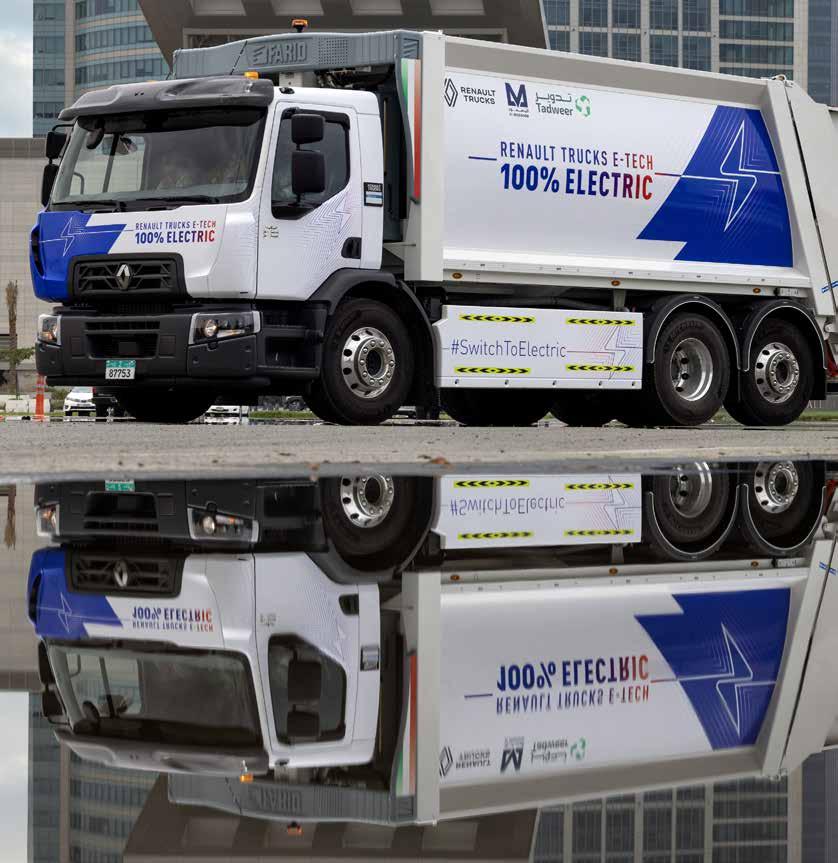NAFL 36th AGM-Legacy of Accomplishments

The Regions Premiere Freight & Logistics Association upholding the industry’s interests for over three decades
National Association of Freight & Logistics
the global voice of freight logistics




The Regions Premiere Freight & Logistics Association upholding the industry’s interests for over three decades
National Association of Freight & Logistics
the global voice of freight logistics


With a complete line-up of AWD and PWD versions and the the 16-speed HI-TRONIX automated gearbox, the IVECO T-WAY features a host of functionalities such as Rocking Mode, Off-road Mode, Creeping Mode and 4 reverse gears to tackle with ease the toughest off-road conditions. The new architecture of the EBS system, combined with disc brakes on all wheels, greatly improves the vehicle’s performance and the driver’s safety in the most demanding applications.
The new IVECO S-WAY, with a completely redesigned and reinforced cab, offers a wide choice of Euro III/V diesel engines, a delivering class-leading power from 360 HP to 560 HP Euro III / 570 HP Euro V and superior fuel-saving devices, such as anti-idling feature, Ecoswitch, Ecoroll and Smart Alternator, 12-speed HI-TRONIX automated transmission with the most advanced technology in its category, electronic clutch and best-in-class torque-to-weight ratio.

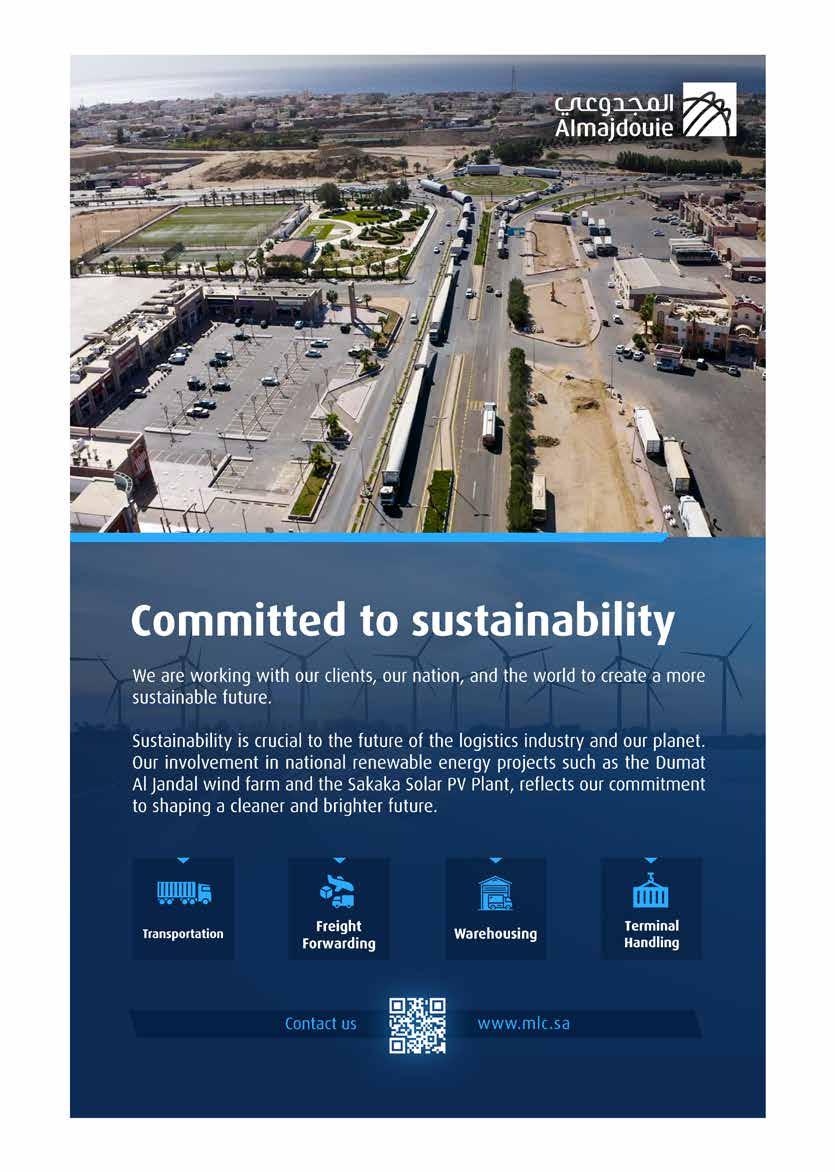

SIGNATURE MEDIA FZ LLE
P. O. Box 49784, Dubai, UAE Tel: 04 3795678
Email: info@signaturemediame.com
Exclusive Sales Agent Signature Media LLC
P.O. Box 49784, Dubai, UAE
Publisher: Jason Verhoven jason@signaturemediame.com
Editor: Malcolm Dias malcolm@signaturemediame.com
Art Director: Johnson Machado johnson@signaturemediame.com
Production Manager: Roy Varghese roy@signaturemediame.com
The burgeoning and growing Saudi Arabian economy, in present times, is always characterized in superlative terms. Even the IMF, in its latest country report, has spoken glowingly of the Kingdom’s finances and its other economic parameters.
The grand Saudi Vision 2030 as outlined by HRH The Crown Prince, Mohammed Bin Salman Al Saud, the architect of the ambitious Plan, is the showpiece of the Kingdom’s growth charter. Furthermore, the grand ‘National Transport and Logistics Strategy,’ a spinoff of Saudi Vision 2030, makes the logistics sector, which at the present time is exceptional and in growth trajectory, the centrepiece of the Kingdom’s focus.
Our Country Report on Saudi Arabia has been compiled in partnership and kind cooperation with our friends and regular contributors, Frost & Sullivan, a growth advisory & growth opportunity analytics firm.
Our cover story for this edition is the recent celebration and commemoration of the 36th Annual General Meeting (AGM) of the long-established National Association of Freight & Logistics (NAFL) spearheaded by Nadia Abdul Aziz, its current President. The veteran leader has had a good track record, having successfully navigated the Association through multiple challenges and difficult circumstances over the years. She spoke exclusively to Global Supply Chain on the occasion.
Printed by United Printing Press (UPP) – Abu Dhabi
Distributed by Tawseel Distribution & Logistics – Dubai

SSI Schaefer has always been ingenious and innovative in its approach and in this company focus report we examine the company’s cold chain capabilities.
Technology is increasingly defining and shaping the logistics industry worldwide. To this end we invited two senior technology stalwarts from German global technology colossus and leading Enterprise Resource Planning software giant SAP and another senior technology professional from DP World to enunciate their stand and their roles in harnessing technology in logistics operations.
The logistics and supply chain industry across the globe and notably the Middle East is volatile and at the crossroads; and we will continue to work hard to bring you to current on developments, reports, features, one-onone interviews, on a wide range of interesting and related subjects both in our flagship monthly print-digital publication, Global Supply Chain, and also on our web portal www.globalsupplychainme.com
Contributor’s opinions do not necessarily reflect those of the publisher or editor and while every precaution has been taken to ensure that the information contained in this magazine is accurate and timely, no liability is accepted by them for errors or omissions, however caused.
Articles and information contained in this publication are the copyright of Signature Media FZ LLE & SIGNATURE MEDIA
Add to this our regular repertoire of the latest news, topical features, profiles, business analyses, professional contributions, OpEds and useful content all of which are well encapsulated and meticulously curated to make for stimulating reading!
Happy reading!
Malcolm Dias Editor06 NAFL 36th AGM
Much to celebrate.
14 Saudi Arabia Country Report Powerhouse economy, ambitious plans.
22 Dubai CommerCity-Wafi
Introducing SparkBiz.
24Amazon Saudi expands Doubling storage capacity in the Kingdom.
23 Volvo Electric Truck FAMCO unveils the first Volvo electric truck in the region.
26 SSI SCHAEFER
Consolidating the Cold Chain
32 F&B Logistics F&B Logistics in the spotlight.
34 Technology in Logistics
Technology titan leads the way.
38 DP World Harnessing technology in port operations.
40 Aviation Training Center, Dubai
Providing Aviation training programmes.
42 DHL Global Forwarding OpEd
Investment in UAE infrastructural projects a welcome move.
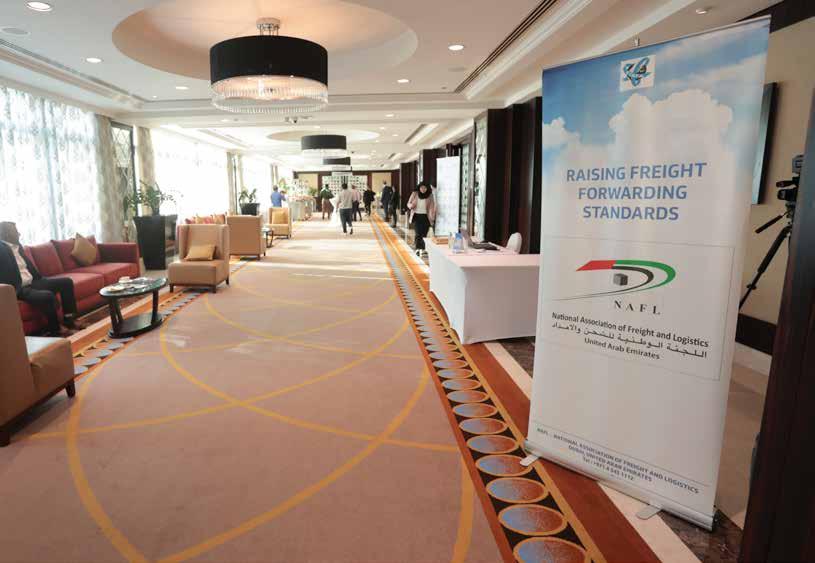
44Renault Trucks
Signs a key deal with CONMIX.
46 News Up to date news of the Global Suppy Chain industry

The latest 36th AGM (Annual General Meeting) of the 1991-established National Association of Freight & Logistics (NAFL) was recently commemorated and celebrated with panache and gusto in the magnificent settings of the sprawling Al Rashidiya Ballroom of the plush Movenpick Rotana close to the Dubai International Airport.
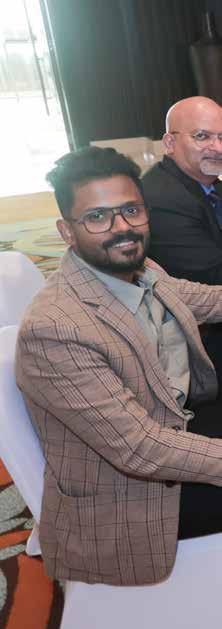
Over 300 attendees—NAFL members and press invitees thronged the venue as an air of optimism spread cheer and an upbeat mood among the attendees.
In her keynote address to the assembly, the long-serving industry veteran Nadia Abdul Aziz, President, NAFL& Vice President, FIATA, lauded the Association’s 2022 performance and its resolve to continue to represent and advocate the business interests of members.
Challenges abound and the competition is intense, but Ms. Nadia assured the assembly that the NAFL stood rock solid behind its members and would endeavour to represent and work in their interest and to protect the interests of the industry.
Nadia expressed confidence that the current situation notwithstanding, the logistics and freight industry in the UAE would continue to grow from strength to strength. She also affirmed that she was working hard to establish fraternal
links with other similar associations overseas and other industry stakeholders as FIATA.

Nadia also stressed technology training, and expertise as tools for the future as also active and constant engagement with the Government and associated regulatory bodies.
To this end, NAFL as a long-established, responsible representative body and the first of its kind in the GCC, is also working closely with the Government, other Governmental bodies, and regulators to ensure that the growth, stability and viability of the freight and logistics sector in the UAE.
Nadia further reiterated that the Government was mindful of both the importance and indispensability of the industry. Simultaneously, both representation and engagement with associates, constituents and Government are pivotal to guarantee an ecosystem for progress and productivity.
Global Supply Chain graciously agreed and spoke exclusively to Ms. Nadia Abdul Aziz, President, NAFL, on the sidelines of the recent 36th Annual General Meeting commemorations. Global Supply Chain (GSC): Provide a general comment on the generic state and health of the logistics and supply chain industry in Dubai and the UAE?
‘Next Generation’ Vision enhances digital transformation at the carrier
in its
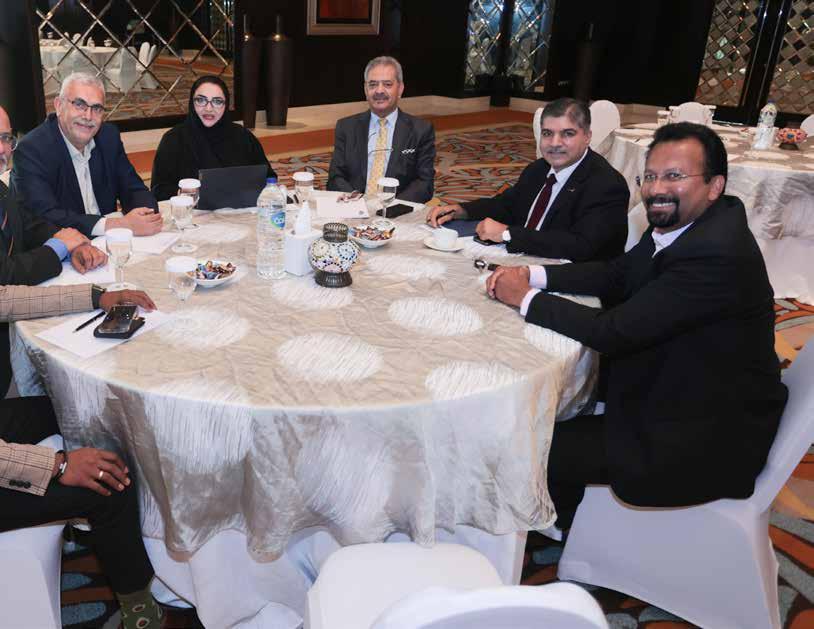
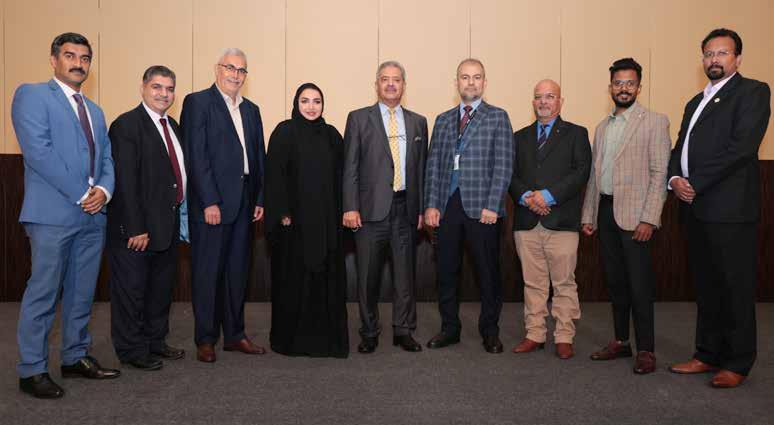
Nadia Abdul Aziz (NAA): Overall, the health of the logistics and supply chain industry is still good, it contributes to more than 14% of the GDP and facilitates trade flow in the UAE. The Government continues to focus and invest further into the logistics sector, infrastructure, digitalization, automation to further contribute and support the supply chain logistics industry, facilitate trade, and make the UAE a logistics mega hub.
GSC: Post-pandemic, how would you describe the rebound of the logistics and supply chain in the UAE (and the GCC region)—broad observations?
NAA: Post-Covid, the rebound has been great, and that is due to the dedicated support from the Government to the private sector. The rules to support businesses continue, thereby maintaining good levels of trade and commerce volumes.
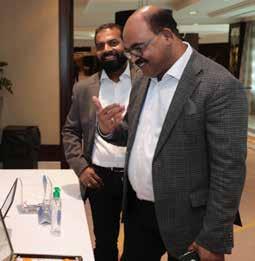
Huge financial stimulus packages were put in place as support to various sectors in the UAE and the GCC. In fact, we had the highest Government stimulus covid support among all the industries.
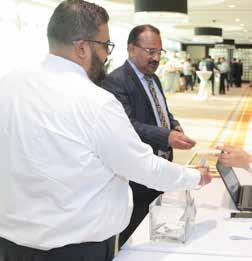
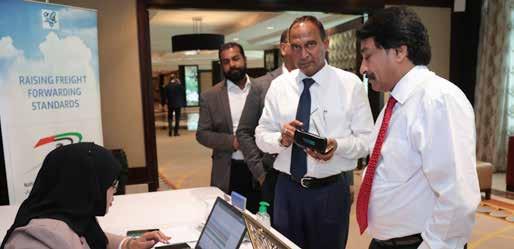

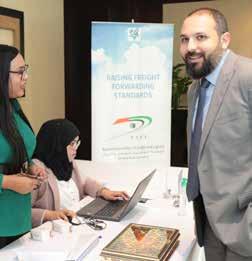
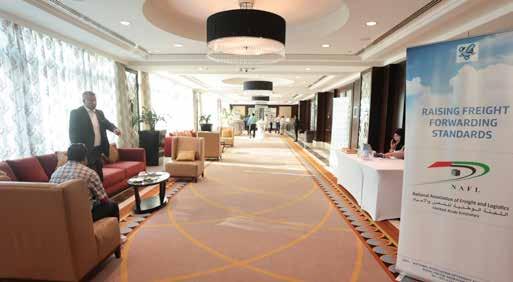
The ‘Business as usual’ approach helped our region to grow, stay stable and gain more trust from investors and other stakeholders. Openness for investors in the GCC markets also supported trade and logistics, as it attracted more investments, trade, and manufacturing which in turn increased the logistics activities and freight volumes in the region.
GSC: Clearly as a non-profit organization what key or pivotal role do you foresee for NAFL for the L&SC business in the present environment?
NAA: Our current role in the industry is more in the nature of facilitators. We support and enable members to get connected with the Government officials, we highlight and voice out their industry concerns and report these to the relevant stakeholders in the Government offices that impact our industry.
GSC: How would you describe your relationship and partnership with the Government and Authorities on the business front?
NAA: NAFL’s relationship with the Government is a good and trusted one and we try to do what’s good for the investors and in the nation’s interests. So, we do our best to coordinate and connect both in a positive and mutually beneficial way. We look at recommendations and any
opportunities and bring them to the attention of the UAE Government stake holders. We also liaise with the Government offices and Enforcement offices when they want to connect or communicate with the forwarders on any new policies, rules, regulations and other practices.
Essentially, we are the trusted connecting link between the public and private sector in the UAE as also with the Government and the regulators when it comes to freight and logistics.
GSC: How are the Dubai / UAE Governments fostering and boosting the growth of the logistics and supply chain alongside state / Government stakeholders such as the customs and ports and airport authorities?
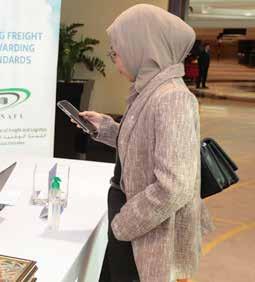
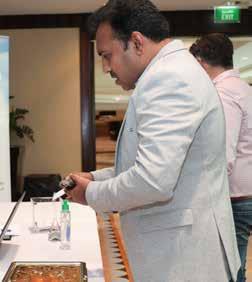
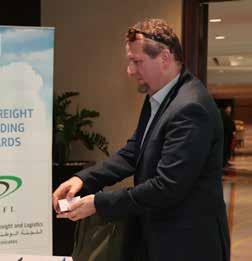

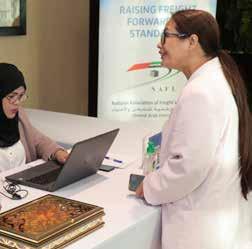
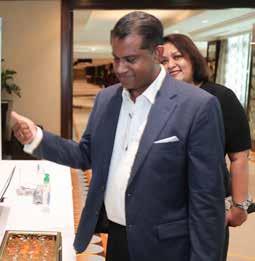
NAA: The Government fosters growth by focusing on ensuring their services are easy to access, and measures that are cost effective and support investors and other stakeholders.
The customs, airports, ensure they are globally linked by offering the best services to international airlines and other regulatory bodies to ensure the best connectivity. Open skies policies attract more airlines into the UAE.
Holistic services are provided. Customs have digitalized their single window services. FTA (Free Trade Agreement), and CEPA (Comprehensive Economic Partnership Agreement) help the processing of transactions quickly for their clients if all requirements are met. Coordination and compliance in accordance with WCO (World Customs Organization) rules and regulations are essential to maintain international standards.
GSC: With the Pharma / Food / Cold Chain and critically required medical / PPE (personal protective equipment) supplies industry in the frontlines of the fight against the virus, how have your priorities been rearranged and what kind of new demands / pressures are being put on businesses now?
NAA: The need for critical goods imports has been recognized by all industry players. The suppliers were able to source their goods from multiple countries. A section of these critical goods is now eventually produced locally.
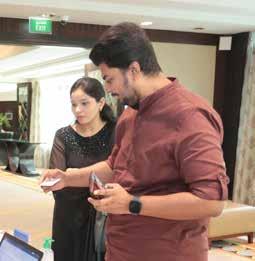
There is also a good buffer-time margin for any emergencies by our Government and their strategic suppliers and partners in the UAE and out of the UAE. The pressure is more on the airlines and specialized forwarders who manage such types of cargo.
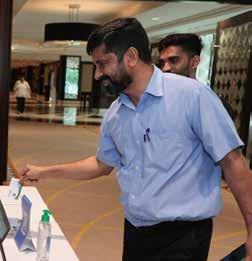
The multinational organizations also played a key role in securing fast deliveries and safe storage of such products. The special ware housing facilities in our country’s freezones have really supported bringing in such goods and the proper storage and distribution of such goods. Great collaboration orchestrated by all agencies in the UAE and by the international suppliers.
Good examples are the temperaturecontrolled pharma warehouses instituted by the Governments, our national airlines’ roles in bringing in critical goods, vaccines on time and intact to users and coordination between the private-public sector health authorities and other constituents.
There is good coordination, planning, and contingency planning by the leaders, Government offices, emergency offices and the private and logistics sectors in the UAE.
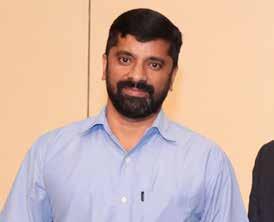
GSC: How important is technology in the new normal scheme of things and how is it enabling and empowering operation in the L&SC trade?
NAA: Technology helps the forwarders to be more efficient and lower costs. It streamlines all the forwarders’ work and makes it more coordinated and efficient. It is one reason also why we are seen as an attractive market for forwarders to grow from.
GSC: What opportunities, potential and challenges confront NAFL going forward?
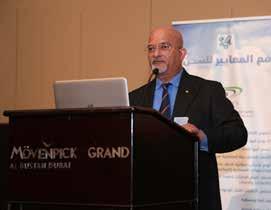
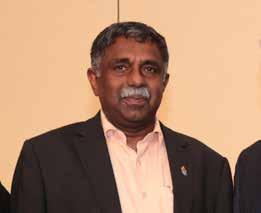

NAA: The opportunities for NAFL are that we can really support the younger generations to enter the logistics sector by providing them with the right tools and mechanisms in terms of trainings, networking, firsthand experience to further help them attain their full potential in the logistics and freight sectors.
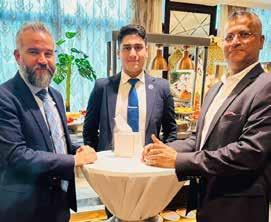
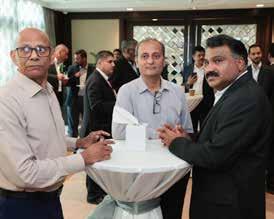

GSC: What kind of business landscape do you foresee for the industry for the short and long-term futures?
NAA: The business landscape for the business is good, but in the long term all players, especially SMEs will need to fully digitalize and secure great end-to-end deliveries and focus on enhanced customer support and experience.
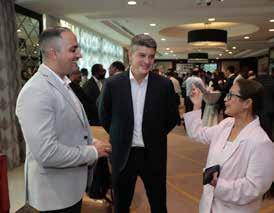
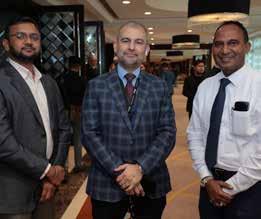
We support the e-commerce sector, cross trade, fulfillment and automated distribution centres. We also concentrate on cost effective services and utilizing the services of the UAE Government to support the international organizations. This implies all distribution and deliveries from the UAE are regulated by technology, cost, connectivity, quality, and compliance.
The various FTAs and CEPA agreements can further support traders and logisticians to use this market as their base for logistics and trade.
It can get their goods duty free if they comply with FTA / CEPA agreements which in turn gives companies a competitive edge.

GSC: What areas do you see greater focus for NAFL and finally what is your outlook and corporate message going forward?
NAA: At NAFL the greater focus is on capacity building, training for members and nationals and particularly trainees who enter this sector. We extend support to our member companies not only in the UAE but in all their activities outside the UAE too. A good example was our participation in the largest freight exhibition at the Munich Transport Logistics 2023 Exhibition in May.
We will continue to build relations with international export and freight offices to further support our members. We collaborate and work with reputable and tested IT developers who can support the industry.
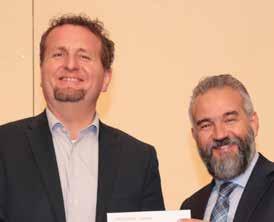
GSC: What are the goals you set out for NAFL in 2023 and to date are these being realized?
NAA: Our goals are to be the primary industry voice in our sector and to sort out bottle necks, focus on industry opportunities, and raise industry standards through professional training programmes.
GSC: Talk to us briefly about your training programmes, participation in key events (such as FIATA) and other external and global bodies?
NAA: We participate in all FIATA events, headquarter meetings, regional conferences, and their Annual World Congress. In addition to that, we as a Board are part of several ad hoc committees and add value and best practices wherever and whenever we participate.
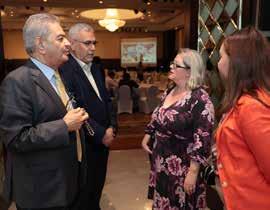
We enjoy a close relationship with FIATA. We represent the UAE to the world when it comes
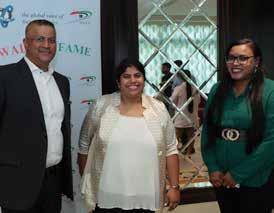
to logistics and the freight sectors. We validate our training manuals every 4 years in conjunction with FIATA and ensure we comply with all their rules to ensure that high training quality is delivered.
GSC: Any general or specific comments or advocacy, lobby, and advisory roles?
NAA: I would like to work more closely with the Government stakeholders to further support the logistics sector, investors, businesses and our community where we can really create a bright future for the younger generations to come.


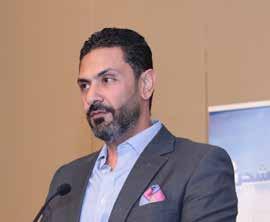

We will initiate and open more dialogue between the public and private sectors to achieve more progress in our industry and at all levels of business and operations, endto-end. Sincere thanks to all our leaders and Government senior officials who have always done their best to support us, our members, and our community.

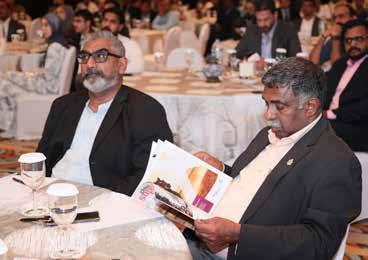
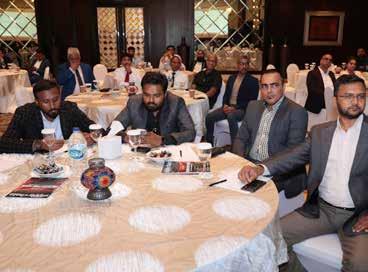
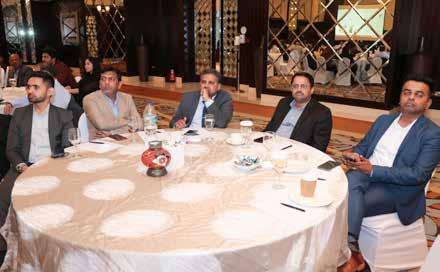
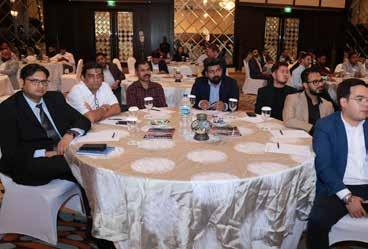
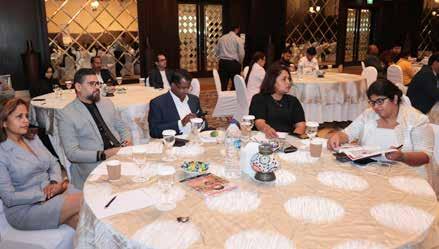
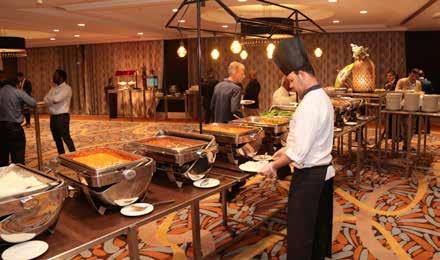
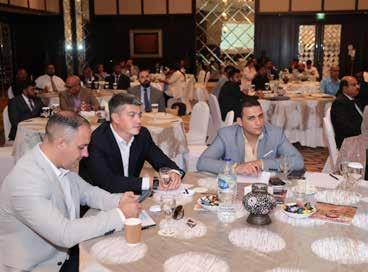
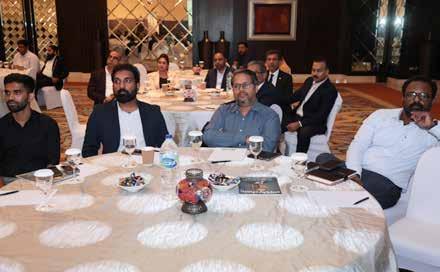
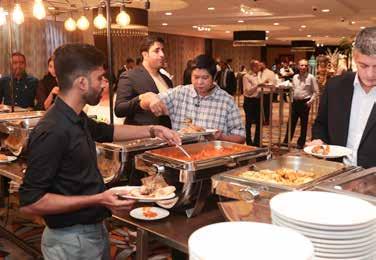
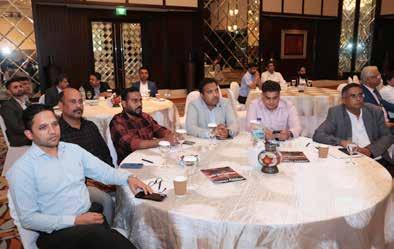
Special Recognition Awards were presented to the following 13 corporate winners at the 36th NAFL Annual General meeting hosted in Dubai’s Movenpick Rotana Hotel on Wednesday, 21 June 2023. The Awards were presented by Nadia Abdul Aziz, President, NAFL, to the applause of the assembled members and guests.
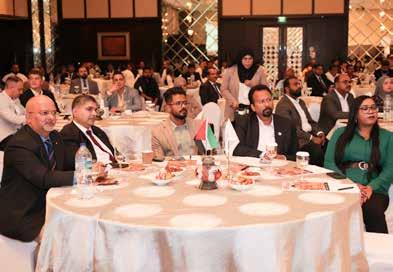
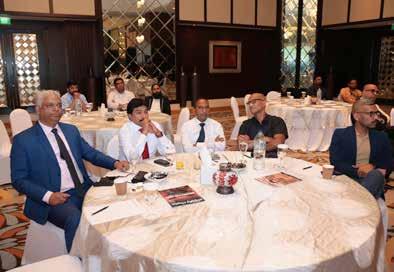
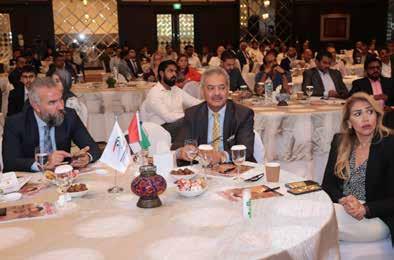







































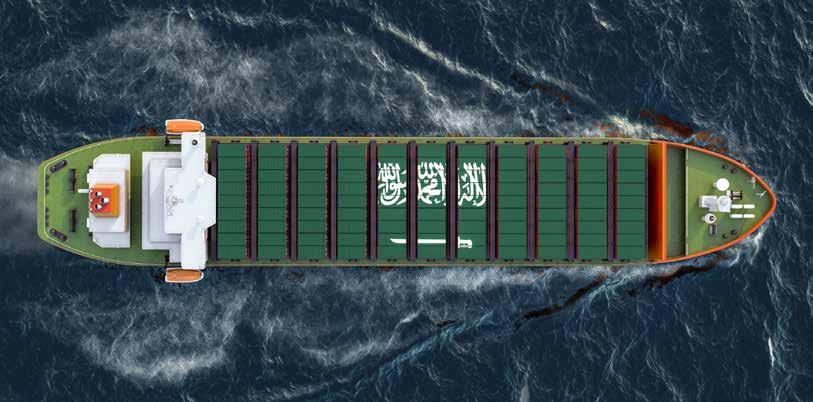
Both the grandiose ‘Saudi Vision 2030’ and the grand ‘National Transport and Logistics Strategy’ make the logistics sector the centrepiece of the Kingdom’s economy, which at the present time is exceptional and in growth trajectory as also affirmed by the latest economic report on the Kingdom by the International Monetary Fund.
Recently, HE Eng. Saleh Al-Jasser, the Kingdom’s Minister of Transport and Logistics Services and Chairman of the Saudi Ports Authority (Mawani) referenced the June 2021 announcement of the crucial National Transport and Logistics Strategy (NTLS), as part of Saudi Vision by HRH The Crown Prince of the Kingdom of Saudi Arabia Mohammed Bin Salman Al Saud. HE The Minister asserted that NTLS boosted economic growth in the Kingdom through a host of measures that include cost-efficient logistics and faster transit times, besides bolstering the value of Saudi products in global markets and unlocking new markets for Saudi exporters across the world.
The IMF has also referenced glowingly on the Saudi economy. According to the recent report which is booming, spurred by high oil
prices, a strong pick up in private investment and reform implementation. The current account surplus has reached a decade-high surplus and inflation is contained.
Uncertainty in the global economy— both impacting financial conditions and oil prices—requires continued efforts to further build buffers and diversify the economy. Going forward, continued fiscal reforms, coupled with careful calibration of investment programmes, will help strengthen fiscal and external sustainability while implementation of the impressive structural reform agenda will help generate a strong, inclusive, and more sustainable growth, the statement continued.


Saudi Arabia was the fastest growing G20 economy in 2022. Overall growth reached 8.7 percent, reflecting both
strong oil production and a 4.8 percent non-oil GDP growth driven by robust private consumption and non-oil private investment, including giga projects. Wholesale, retail trade, construction, and transport were the main drivers of non-oil growth.

The output gap is estimated to have closed during 2022 and the momentum is continuing in 2023, with nowcasting estimates suggesting non-oil growth above 5 percent in H1-2023.
Our go-to expert, J Sivan, Senior Consultant, Supply Chain & Logistics Practice, Frost & Sullivan, and our regular analyst and commentator, responded to a recent comprehensive questionnaire by Global Supply Chain related to the economy and logistics industry in the Kingdom. The following are the transcripts of that exclusive interview.



The Kingdom’s ambitious ‘National Transport and Logistics Strategy’ is intended to facilitate cost-efficient logistics operations
J Sivan is Senior Consultant, Supply Chain & Logistics Practice, Frost & Sullivan.
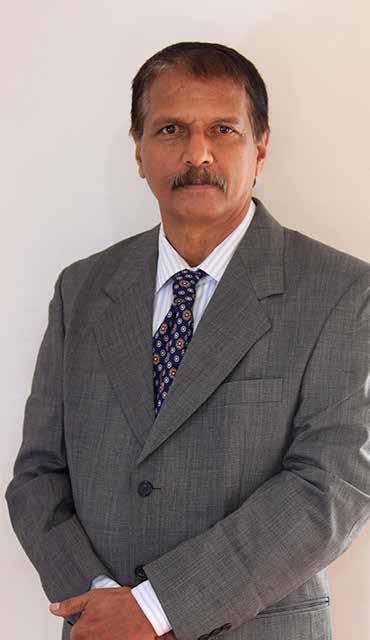
Sivan has over 15 years of experience in economic, industrial, supply chain, and logistics research and consulting space. He has hands-on experience developing insights and actionable strategies for various strategic and operational challenges relating to supply chain and logistics.
Global Supply Chain (GSC): In some quarters, the Kingdom of Saudi Arabia’s 2023 growth forecast is expected at 3%, well above the IMF forecast of 2.6%, as a bullish view on oil prices in 2023 underpins a more optimistic outlook for the Kingdom’s non-oil economy. What is Frost & Sullivan’s take/viewpoint on the state of the Kingdom’s economy?
J. Sivan (JS): With stable growth in non-oil sectors, KSA is expected to overcome the effects of the global uncertainties caused by political crises such as Russia Ukraine war and high inflation caused by disruptions in commodity supplies.
The country reported a GDP of about US$ 1.13tn in 2022, with real economic growth of 8.6 %. Oil sector made a major contribution to the growth, mainly due to high oil prices. Significant improvement in the business environment due to the structural reforms implemented is expected to pay off in the medium term.
In addition, investment in large-scale projects as a part of non–oil sector development, such as infrastructure, entertainment, education, and tourism sectors, are likely to support growth. With inflation under control, domestic demand will play a key role in the economic growth in 2023. GDP growth is expected to return to the trend growth rate 3.0%-3.5 % in 2023.
GSC: The Saudi economy is being boosted by surging oil prices / revenues following a recent decision by OPEC members in early April 2023 to reduce crude oil production. What implications does this have for the Kingdom’s economy in real time and what is your assessment of the same?
JS: The oil sector contributed more than 70% of GDP growth in 2022. Government revenues increased by 31% to reach US$ 335.6bn in 2022, and the oil sector contributed to 67% of the revenue.
Oil prices started declining from H2-2022 due to slower global economic and trade growth and hit a low of USD 67. Saudi Arabia also announced voluntary reduction of oil output by 500,000 barrels per day (bpd) from May until the end of 2023.
As a result, oil prices could increase by up to US$ 10 a barrel, which could partly offset the decrease in oil demand in 2023. The oil sector contributes about 40% of GDP and around 60% of government revenue which is likely to support infrastructure investment growth. Considering logistics as a priority area and part of Saudi Vision 2030, investments in logistics infrastructure is expected to increase.
GSC: Will normalization of relationship with Iran and with China acting as a mediator impact the economy?
JS: The importance of the Gulf region to the global economies arises from two major reasons: energy reserves and strategic location connecting three regions (Europe, Asia, and Africa), each standing at a different stage of economic development but with a
significant trade potential.
Centralized distribution hubs in the Gulf region will play a key role in redistributing goods from the three regions. China is a major exporter to all three regions and major part of its exports pass through the Arabian Gulf region. Political stability in the Gulf region is essential for smoother flow of goods traded between these regions.
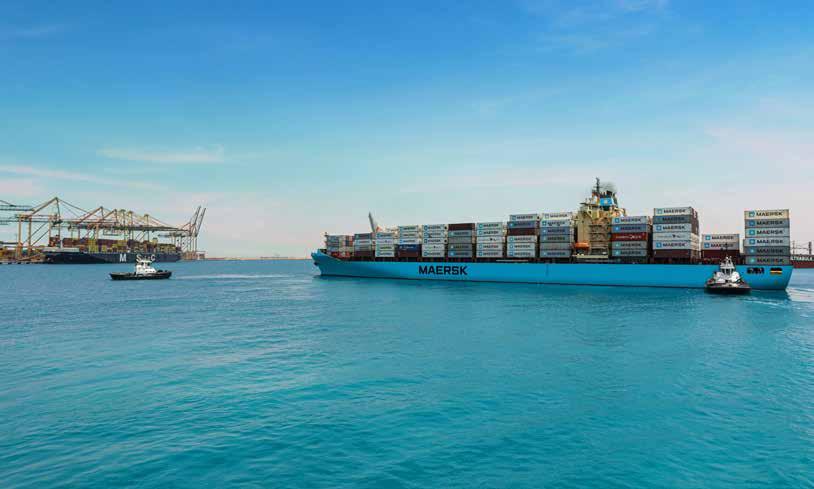
The Gulf region is also an important hub for cross-border e-commerce. Reestablishing diplomatic relations by Iran and Saudi Arabia would, in the short run, reduce political tensions in the region, paving the way for the next phase of dialogues focusing on security, trade and economic cooperation.
GSC: How are sweeping pro-business reforms, business visa liberalization and other measures and regulations accelerating economic growth in the Kingdom?
JS: Government’s focus on improving the investment climate has led to more than 300 pro-business reforms and initiativ es in the areas of: ease of doing business, women’s participation and offering incentives for foreign investment.
The Global Supply Chain Resilience Initiative (GSCRI) aims to support the position of the Kingdom as a key hub for
global industry and trade for Healthcare & Life Sciences, Mining and Metals, Real Estate, Financial Services, Agriculture & Food Processing, Information and Communication Technology, Aerospace and Defence.
Furthermore, under the Shareek (partnership) initiative, private companies invest a percentage of their profits in local investments aimed at increasing private sector’s share of GDP from 40% to 65% by 2030. Such investments are likely to transform the Saudi Arabia’s industrial and non-oil sector growth.
GSC: As things stand currently, what are the key takeaways and highlights of the Saudi economy?
JS: The growth of the non-oil sector is estimated at 5.8%, and the overall GDP growth is projected at 3.9 % in Q1-2023. For the entire 2023, an estimated forecast for non-oil activities GDP is projected to be at 5.0%. Increase in private consumption, investments by Public Investment Fund (PIF) and other government private organizations will play a key role in increasing GDP from non-oil sectors.
Oil sector growth is estimated at 1.3% and is expected to be in the range of 1.5% to 2.0% in 2023, driven by improvement in economic conditions in H2-2023.
The boom in e-commerce and increased cross-border trade is expected to support the growth of the logistics industry.
GSC: Where are the new opportunities and challenges for investment in Saudi Arabia and which sectors hold the most promise and potential?
JS: New opportunities for Investment in Saudi Arabia are in the sectors such as petrochemicals, logistics, construction, mining, manufacturing, industrial and tourism. Challenges within the investments could be related to increasingly changing business environment and security challenges.
However, one should note that the opportunities outweigh the challenges by a huge margin. As KSA is moving towards developing its sectors with full force, foreign investments are increasing. PIF is leading this as the government-led investor, fuelling the growth of various sectors.
The most promising sectors are in the region are manufacturing, industrial and tourism, with Giga Smart City projects under construction.
GSC: According to Saudi Vision 2030, the logistics and supply chain, and
transportation infrastructure will be the centrepiece of the Kingdom’s economy…. comment please.
JS: The National Industrial Development and Logistics Programme (NIDLP) has commenced several initiatives for increasing the country’s industrial output and aims to improve Saudi Arabia’s logistics infrastructure by constructing 8 special economic zones by 2025 to support the development of NIDLP’s focus sectors. This will support KSA’s broader Vision 2030 that aims towards becoming the region’s logistics hub by connecting Europe, the Americas, Asia, and Africa through investments in the development of ports like King Abdulaziz Port and increasing the overall capacity of not only ports but also air cargo. This will improve trade flow within the region and improve the economy. In addition, the nation is also planning to further the economic growth with tourism and is developing its transportation sector by adding 3,000 kilometres of railway tracks to the current 5000 kilometres. The completion of Riyadh Metro by 2023 will also aid the tourism sector by offering easier transportation within the city.
GSC: Very recently the Kingdom recently
announced 4 new special economic zones to be established in Riyadh, Jazan, Ras Al-Khair and King Abdullah Economic City. How game-changing is the move?
JS: Investment incentives offered by special economic zones include tax relief for 50 years/corporate income tax reductions, VAT exemptions based on sector/activity criteria, deferred custom duties on goods entering the SEZ and cost of doing business with competitive infrastructure support.
This will make these zones ideal for foreign investment in several strategic sectors. It will also provide smaller players a chance to integrate with global value chains and reap the benefits of a resilient supply chain. SEZs will play a key role in increasing FDI and improve the global value chain integration of Saudi-based companies.
For instance, King Abdullah Economic City Special Economic Zone is at a strategic location for global value chains, and it aims for investments in Automobile supply chain and assembly of Consumer Goods ICT (Electronic light manufacturing), Pharmaceuticals MedTech and Logistics.
The Ras Al-Khair Special Economic Zone aims to attract investment in shipbuilding, rig platforms and Maintenance, Repair, and Operations (MRO).
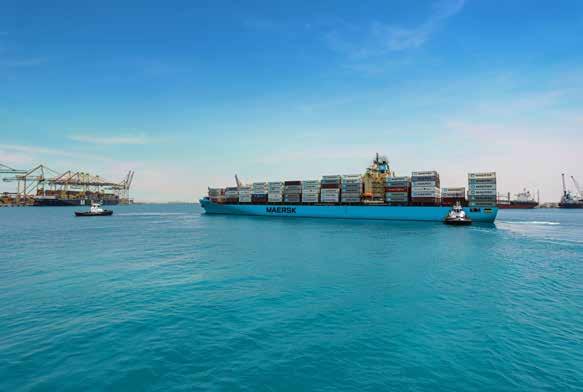
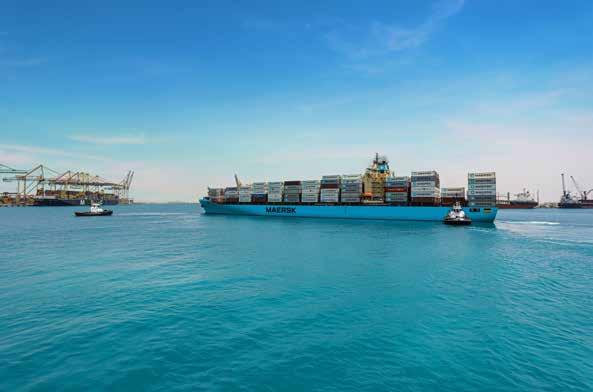
The Saudi ports sector has recorded a remarkable rise in the UNCTAD’s Liner Shipping Connectivity Index (LSCI) for Q2-2023 by scoring 76.16 points, a result that enabled the Kingdom to secure the sixteenth position from among 187 countries, the Saudi Ports Authority (SPA) announced in a recent press communiqué.
HE Eng. Saleh Al-Jasser, Minister of Transport and Logistics Services and Chairman of the Saudi Ports Authority (Mawani) used this occasion to thank the Kingdom’s Leadership for their unwavering support of the nation’s transportation, logistics, and ports sectors, noting that the landmark achievement will strengthen the country’s competitive position on the global
maritime map.
The addition of 20 shipping services to the Saudi ports network in the first half of 2023 by global cargo carriers also played a key role in enhancing its attractiveness, optimizing operating efficiency, and cementing its standing as a leading logistics hub of choice, according to HE Al-Jasser.
The latest success closely follows the Kingdom’s 17-place jump in the World Bank’s Logistics Performance Index (LPI), securing the 38th position globally from among 160 countries. Strategically located along the world’s major trade routes, Saudi Arabia is currently linked to 348 ports through 97 shipping links, a press communique concluded.
The focus of the Jazan Special Economic Zone (SEZ) is on the development of food processing, metal conversion and logistics.
The King Abdulaziz City for Science & Technology (KACST) Cloud Computing Special Economic Zone: This project includes a target for US$ 13bn investments (FDI & Domestic Direct Investment) by 2030 across Data and AI sectors with support from Cloud Computing SEZ.
The Special Integrated Logistics Zone (SILZ) is sited at Riyadh’s King Khalid International Airport. This project focuses on the trade of consumer products, computer parts, pharmaceuticals, nutritional & medical supplies, Aerospace spare parts, luxury goods, jewellery, and precious metals.
GSC: How significant is the logistics and supply chain industry to Saudi Arabia, the region’s biggest economy?
JS: Without a resilient supply chain, growth of various sectors might get hindered, and therefore the sector will stagnate in terms of development. Saudi Arabia has a geographical advantage; it aims to establish itself as a logistics hub and therefore improve its economic stature through the National Industrial Development and Logistics Programme.
By 2030, KSA intends their transport and logistics sector to contribute a share of 10% to the total GDP, which stood at
around 6% in 2021.
GSC: What kind of impact will giga projects like Neom, AMAALA, Red Sea Development Project and Qiddiya to name a few, have on the logistics sector in the Kingdom?
JS: A key initiative, as we all know, NEOM, is a futuristic city under the Saudi Vision 2030 that will be built on sustainability and a completely automated logistics and supply spanning over 26,500sqkm.
In addition, other giga projects like AMAALA, Qiddiya and Red Sea Development are being constructed and will be placed as key industrial, residential and tourist locations. As foreign investments increase in the Kingdom with initiatives like the Global Supply Chain Resilience Initiative (GSCRI), new businesses will enter the market and current businesses will develop and evolve especially in the futuristic cities of NEOM, AMAALA, Qiddiya and Red Sea. We anticipate this to increase the demand for logistics services to ensure proper supply chain flow to these destinations as they are expected to host high number of tourists, residents, and manufacturing units.
GSC: There has been substantial investment in the Kingdom’s sea ports / airports / transportation sector. What are the repercussions of these moves?
JS: Reforms, industrial development plans and GSCRI are expected to increase demand for transport and logistics infrastructure such as seaports, airports, and railways to meet the increase in demand for logistics services.
Some of the major expansion plans include the King Abdullah Port and the expansion of the Jeddah Islamic port, which are expected to increase sea freight. Higher number of established seaports is expected to improve the export and import container movement and storage.
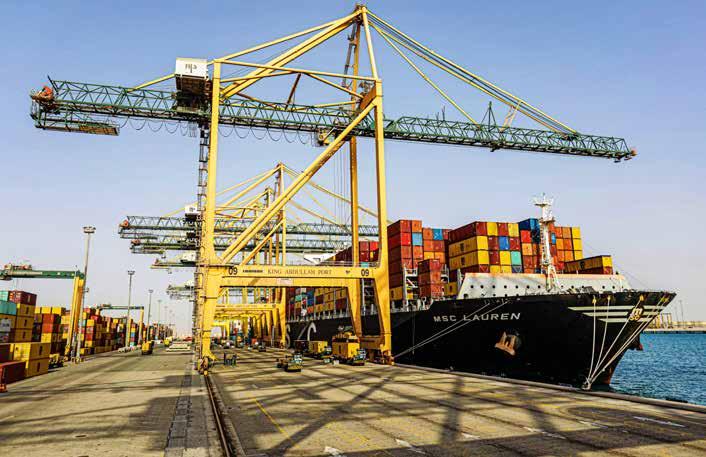
Investments of US$ 100bn in expanding the aviation sector, is expected to increase KSA’s air cargo capacity to more than 4.5mn tons per year by 2030.
The country is also investing in its railway cargo with plans of adding another railway line, expanding its current 3,650-kilometer track on three lines. It aims to add 8,000km to its existing track connecting Dammam Industrial and Jubail Industrial Port.
These expansion plans are in line with economic, industrial and trade growth objectives, which require a resilient supply chain and hence will contribute to the overall competitiveness of the country.
GSC: Recently, the Kingdom has also been investing heavily in the minerals and mining sector and Ma’aden, the stateowned mining company. How valuable is
Inco Terms and Letter of Credit - UCP 600 Discounted Course Fees : AED 600/-
Scan
QR Code and Avail 80% Discount


Inco
and Letter
Inco Terms and Letter of Credit - UCP 600
Associated Course Fees : AED 600/-
General Civil Aviation Authority (GCAA) & IATA | Approved CBTA DGR Training in Dubai (UAE)
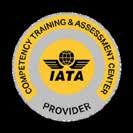
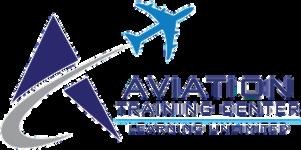
General Civil Aviation Authority (GCAA) & IATA
Approved CBTA DGR Training in Dubai (UAE)
D A N G E R O U S G O O D S R E G U L A T I O N S
Approved CBTA DGR Training in Dubai (UAE)
Air Cargo Courses Supply Chain Courses
Transportation of Lithium Battery
Live Animals Regulations (LAR).
Transportation of Infectious Substance.
Air Cargo Operations
The International Maritime Dangerous Goods (IMDG)
Transportation of Lithium Battery. Live Animals Regulations (LAR).
Transportation of Infectious Substance.
• The International Maritime Dangerous Goods (IMDG).
Air Cargo Operations.
The International Maritime Dangerous Goods (IMDG).
• Transportation of Dangerous Goods by Roads.
CILT International Diploma in Logistics and Transport
Supply Chain Courses

Warehousing
Air Cargo Courses Supply Chain Courses
Inventory
Passenger Transport Operations. Procurement.
• CILT International Diploma in Logistics and Transport.
• Warehousing.
Freight Transport Operations.
• Inventory.
Supply Chain Operations
B E C O M P L I A N T W I T H T H E R E G U L A T I O N S ! 701, Ithraa Plaza, Near Jumeirah Creekside Hotel, Garhoud, Dubai –UAE P.O. Box: 62953, Tel: +971 4 259 555 6, Email: info@atcdubai.com
• Passenger Transport Operations.
Transport Planning
• Procurement.
CILT International Diploma in Logistics and Transport. Warehousing. Inventory.
• Freight Transport Operations.
Passenger Transport Operations
• Supply Chain Operations.
www.atcdubai.com
Procurement.
Freight Transport Operations.
Supply Chain Operations.
Transport Planning .
B E C O M P L I A N T W I T H T H E R E G U L A T I O N S ! 701, Ithraa Plaza, Near Jumeirah Creekside Hotel, Garhoud, Dubai –UAE P.O. Box: 62953, Tel: +971 4 259 555 6, Email: info@atcdubai.com
this segment to Saudi Arabia?
JS: As per the National Industrial Development and Logistics Programme (NIDLP), the mining sector is expected to become a key pillar of the economy by utilizing available mineral reserves.
In addition, through the state-owned Saudi Arabian Mining Company (Maaden), the Kingdom is planning to intensify a drive to attract more investments in the mining sector to boost its contribution to GDP by more than US$ 111bn by 2040 by investing about US$ 66bn by the same year.
The KSA’s Ministry of Industry and Mineral Resources is planning to ensure around US$ 32bn worth of investment in nine mining projects of key metals and minerals. The nation has also passed around 400 updates to its existing mining laws and policies streamlining license processes and data sharing to reduce risks to investors.
The Gulf Kingdom, which has been locked in a drive to diversify its oil-reliant economy, awarded 210 metal industry permits and attracted more than SAR 120bn (US$ 32bn) in domestic and foreign capital into the metals sector in 2022.
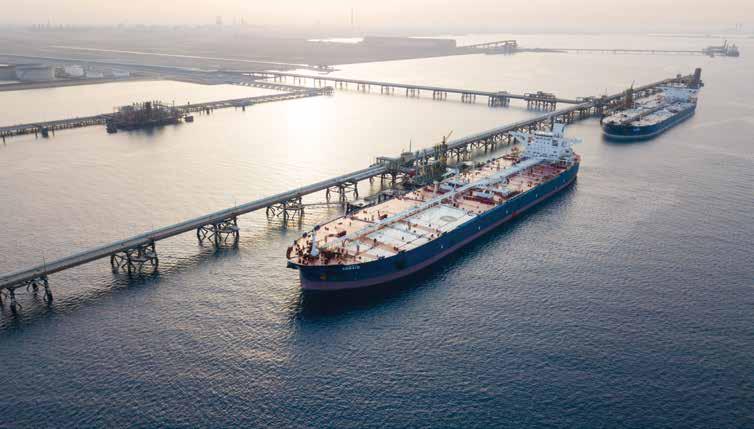
The Kingdom of Saudi Arabia, being one of the countries in the Arabian-Nubian Shield, covers 700,000sqm of mining opportunity, and through Vision 2030 it has planned to tap into the potential of Arabian-Nubian Shield and become the hub of mining
activities throughout the GCC region and into the North African region as well.
GSC: Based on current trends and economic indices, what is Frost & Sullivan’s prognosis for the Saudi economy and the logistics and supply chain sector for 2023?
JS: The quarterly GDP growth trends indicates that the economic growth started slowing down from H2-2022. A high growth was observed in H1 2022 mainly due to rise in oil prices and moderate contribution from non-oil economic sectors. With declining demand for oil, oil prices will remain subdued, and overall contribution to GDP growth will remain moderate.
The transportation and logistics sector, which contributes to 4.5% of the national GDP, is a priority sector driven by Vision 2030 and the National Industrial and Logistics Development Plan.
The development of non-oil sectors in Saudi Arabia is expected to generate more opportunities. Thereby, the supply chain sector is projected to see a high demand in relation to increased business activities. The industry is expected to grow at a CAGR around 4%-5% between 2022-2025 as KSA’s vision 2030 will progress.
GSC: How significant is FDI and the free zones for the Saudi Arabian economy? Roughly what percentage of the country’s
JS: The FDI policies focus on three areas to attract investment in strategic sectors: these include the facilitation of private investment by improving investment ecosystem; support for business establishment in free zones and incentives and long-term tax holidays.
FDI inflow hovered around US$ 6 to US$ 8bn in the last decade, with total inward investment in 2022 estimated at US$ 7.9bn. Under the National Investment Strategy, the government is keen on increasing the FDI inflow to more than US$ 100bn per annum by 2030.
GSCRI and Free Zones are expected to accelerate foreign investment in the medium term. GSCRI aims to attract investments and promote opportunities in renewable energy, military industries, marine industries, aerospace, and automobiles. Between 2023 and 2025, the GSCRI initiatives are expected to attract US$ 10.6bn in the strategic sectors.
Foreign Direct Investments as a share of GDP varied from 1.5% of GDP to 2.0% GDP between 2010 and 2015 and declined to 0.5% -1.0% between 2016 to 2023. Private investment in the non-oil sector will be crucial for economic diversification and decoupling from oil-based economic growth, which is likely to be less sensitive to oil price fluctuations.
Pick every item in the warehouse quickly and error-free. SSI SCHAEFER picking systems are flexible and suitable for all common product groups and goods types.
Explore the entire spectrum of systems from manual, semi automated picking and fully automated picking to harmonize and increase visibility on all your inventory movements.

Pick the perfect experience using:
Modular solutions
Advanced Goods-to-Person Pick Station
Pick by light, Pick by Voice & RF Picking
Goods-in Station
E-Pick
Automated picking
3D-Matrix Solution®
SSI Case Picking
Robotics
A-Frame Fulfilment Factory®
Dubai CommerCity, the first and leading free zone dedicated to digital commerce, part of the Dubai Integrated Economic Zones Authority (DIEZ) and a joint venture with the property developer Wasl, recently signed a partnership agreement with the Wafi Group’s upcoming omnichannel department store Link at Wafi City to launch SparkBiz, a unique solution that offers exceptional benefits to businesses looking to enter and expand in the region’s market.
The unfurling of SparkBiz came during a signing ceremony, attended by Sheikh Ahmed Bin Mana Al Maktoum, Deputy Chairman, Wafi Group, and Amna Lootah, Board Member, Dubai CommerCity, and representatives from both sides.

This partnership reflects the free zone’s commitment to achieving the objectives of the Dubai Economic Agenda (D33), which seeks to double the size of Dubai’s economy and accelerate the growth of its digital economy. It also reaffirms its commitment to supporting the UAE’s digital economy strategy, which aims to create opportunities and enhance foreign direct investments.
Further, the launch of SparkBiz contributes to enhancing Dubai CommerCity’s reputation as an ideal destination for global businesses to benefit from a competitive and advanced digital ecosystem that enables them to build their presence in the region.
SparkBiz is an initiative that seeks to encourage foreign companies to enter the region’s market by facilitating business establishment procedures and offering cost effective solutions, customs support, a unique omnichannel experience, optimized digital marketing, a platform to evaluate the financial performance of products, and a state-of-theart physical space at the free zone.
“Dubai has always been at the forefront of adopting cutting-edge technological solutions to enhance its digital ecosystem and facilitate business operations for companies in the UAE. This contributes to consolidating Dubai’s position as a global
hub for trade and business, attracting foreign investments and global businesses to create a dynamic and advanced business environment through its economic zones,” asserted Sheikh Ahmed Bin Mana.
“This strategic partnership is an important development and aligns with our efforts to lay the foundations for a more integrated and flexible economy, based on innovation, and advanced technology as the main drivers of sustainable development,” affirmed Amna Lootah.
“The SparkBiz solution serves as an exceptional opportunity for retailers to access a diverse set of benefits and packages, including company setup processes such as visa services, leasing and licensing, and bank account opening, in addition to offering a unique omnichannel experience, and fulfillment services including customs documentation, storage, and handling, among others,” she added.
“Link will play a vital role in providing a seamless phygital experience, bridging the gap between physical and virtual retail to
consumers, and offering global retailers a unique test market opportunity. SparkBiz, will offer exceptional benefits to businesses looking to enter and expand in the region’s market,” commented Stephanie-Alexandra Chartier, Head of Marketing, Wafi Group.
Dubai CommerCity offers a competitive digital commerce ecosystem and a comprehensive turnkey digital commerce solution for businesses to operate efficiently and with ease. Additionally, Dubai CommerCity offers digital commerce strategy consulting, guidance on digital commerce regulations in the region, end-to-end logistics solutions inclusive of warehousing and last-mile delivery, complete digital commerce platform solutions, digital marketing services, and other support services, a press communique stated.
Link is a phygital department store, which is set to open at Wafi City in the heart of Dubai, who enables products to be displayed physically in its 3300sqm showroom and purchased digitally through its marketplace.

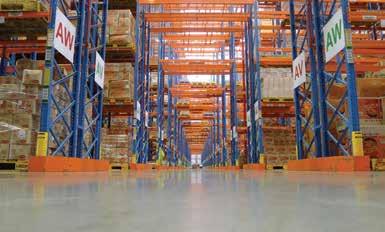
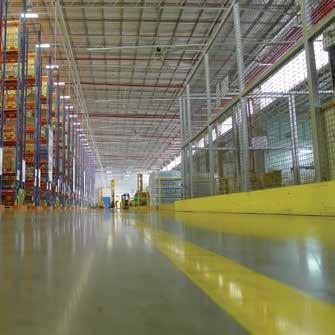
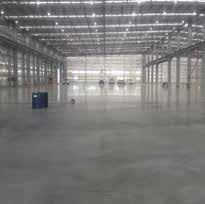
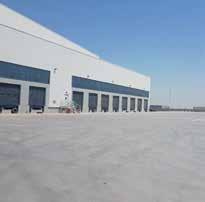

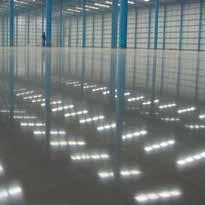

in the Kingdom as the company continues its efforts to bring global standards and processes to the ecommerce sector in Saudi Arabia,” commented HE Eng. Saud Bin Rashid Al-Askar, Deputy Governor, the Saudi Standards, Metrology and Quality Organization (SASO).
“Led by a diverse cohort of talented Saudi nationals in managerial positions, we expect this Fulfillment Centre to support the Kingdom’s digital economy goals,” stated Abdo Chlala, Country Manager, Amazon Saudi Arabia.
In support of Saudi Arabia’s rising entrepreneurship culture and rapid development of small and medium enterprises (SMEs), the enhanced capacity will empower independent sellers to scale their businesses online.
The new Riyadh Fulfillment Centre has a storage capacity of 2.7mn cubic feet, housing over 9mn products
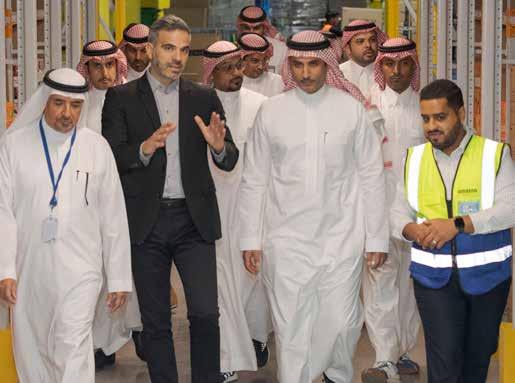
Eng. Suliman Almazroua, CEO, Saudi National Industrial Development and Logistics Programme (NIDLP), and delegations from the Ministry of Transport and Logistics Services, the Transport General Authority, and Monsha’at, Saudi Arabia’s General Authority for Small and Medium Enterprises, recently witnessed the inauguration of Amazon’s latest Fulfillment Centre in Riyadh, Saudi Arabia.
Following the ceremony, Abdo Chlala, Country Manager, Amazon Saudi Arabia, along with Prashant Saran, Director of Operations, Amazon Middle East, and North Africa (MENA) and Dr. Hatem Samman, Public Policy Lead, Amazon Saudi Arabia, guided the dignitaries on a tour of the facility, a press communique stated.
“The new Fulfillment Centre in Riyadh will further unlock the value of the Kingdom’s resources by empowering local startups and entrepreneurs with improved global connectivity and access to new markets,” remarked Engr. Almazroua.
As the Kingdom accelerates towards a digital economy with a growing ecommerce market, the new Fulfillment Centre will double Amazon’s total storage capacity in Saudi Arabia. The facility spans 390,000sqft across five floors, approximately the size of five football fields. The centre will be able to store over 9 million products.
“We are happy to see Amazon’s expansion
To reach a wider customer base faster and more efficiently, Saudi sellers can take advantage of the Fulfilled by Amazon (FBA) offering that allows them to store, pick, pack, and ship customer orders through Amazon.
“At Amazon, we relentlessly innovate on behalf of our customers and continue to strengthen our operations with state-of-the-art technology and global processes and programs in order to ensure a fast, convenient and reliable shopping experience,” noted Prashant Saran, Director of Operations, Amazon MENA.
The new facility incorporates innovative solutions powered by Artificial Intelligence and Machine Learning in its operations and more than two and a half kilometers of conveyance equipment to ensure seamless fulfillment operations.
As part of Amazon’s commitment to be net-zero carbon across its business by 2040, the facility is powered 100% by electricity, including its heating and hot water systems, avoiding the use of fossil fuel combustibles and with energy efficiency as a top priority, the press note concluded.
The electric truck range by Volvo has already been tested for the region
FAMCO recently announced the unveiling of the first-ever heavyduty electric truck in the Middle East, solidifying their position as pioneers in the market and their commitment to sustainable solutions in transportation.
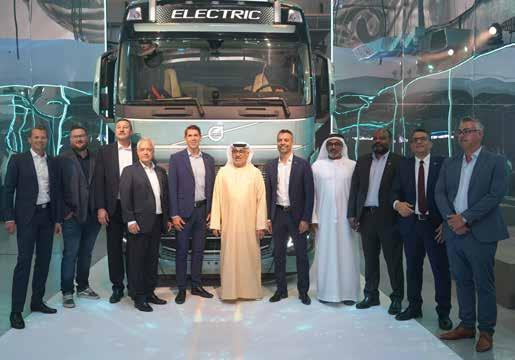
The groundbreaking achievement by FAMCO, the sole UAE distributor for Volvo trucks, buses and construction equipment, represents a significant stride towards reducing transportation-related emissions to zero, aligning with the UAE’s sustainable development strategy as the whole country prepares to host the COP28 in November 2023.
The launch event was held at the Al Serkal Avenue in Dubai’s Al Quoz district. and was attended by the high-level officials from Volvo, FAMCO and the Al-Futtaim Group. Also present on the occasion was HE Liselott Andersson, the Ambassador of Sweden to the UAE.
“While we currently offer a wide range of hybrid and electric vehicles, the launch of the first-ever heavy-duty electric truck range by Volvo represents a huge leap into a greener future,” affirmed Ramez Hamdan, Managing Director, FAMCO.
“FAMCO, part of the Al-Futtaim Automotive Group, continues to introduce new products and services to keep the UAE moving towards building a more sustainable future of mobility and support the UAE’s Net-Zero 2050 strategic goals,” he continued.
Key Specifications of the Volvo FH Heavy-Duty Electric Truck:
• Gross Combination Weight (GCW) of up to 44 tons
• Impressive range of up to 300 kilometers
• Rapid charging time of 2.5 hours (DC) / 9.5 hours (AC)
• Exceptional driveline performance of up to 490 kW / 666 hp
Unlike other companies still in the testing or trial stages, Volvo offers a full range of electric trucks that are tested and available for purchase, as the first truck was already sold to Unilever, the FMCG giant for their UAE operations.
Through investing in Volvo’s electric trucks, business partners can, not only electrify their fleets but also, become pioneers in the green transportation movement, and eventually, a better future for the planet, a corporate press communique stated.
“We have committed to achieving net
zero emissions throughout our value chain by 2039. Logistics will play a crucial role in achieving this ambition as it contributes up to 15% of our emissions,” asserted Ahmed Kadous, Head of Supply Chain MENA & Personal Care Category, Middle East & Turkey, Unilever.
“This is why we are pioneering the green transportation movement in the UAE, and this electric truck forms the second addition to our delivery fleet. Earlier in March we added the first Electric Van (EV) to our UAE delivery fleet, which was also the first in the UAE,” he concluded.
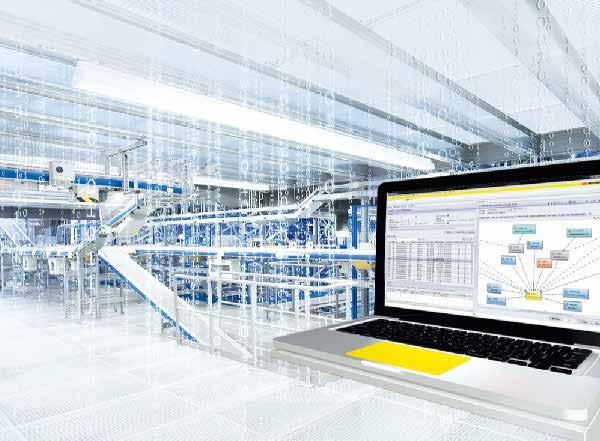
Managing a cold storage warehouse efficiently poses serious hurdles because the storage of perishable and sensitive goods requires special handling and monitoring. Most logistics and operation managers seem to face an awkward situation in developing an efficient and cost-effective material flow infrastructure, mainly because the planning process must occur before the construction of a warehouse, whether a temperature-controlled or an ambient facility, affirms Carsten Spiegelberg, Managing Director, Middle East & Africa, SSI SCHAEFER, in this special editorial contribution to Global Supply Chain.
Cold chain solutions are required at every stage of the supply chain, from the point of production, through manufacturing and storage to wholesale and ultimately to retail or catering establishments and to people’s homes. In this climatic world that we live in today, higher temperatures and more extreme events are affecting the cost and the demand for cooling across the world. Globally, the growing requirements for cooling solutions while simultaneously reducing the energy and carbon emissions associated with storage and distribution are at an all-time high. Over the last three years of the pandemic crisis, it has further accelerated the demands for storage and the requirements for B2B and even more B2C performance and highlighted the importance of cold chain in many business sectors worldwide – notably, the Pharmaceutical and the Food & Beverage verticals.
Even before the crisis, changes in eating habits, all year-round availability of food, the rise in single households and the growing demand for convenience products have led to a significant growth in the deep-freeze and temperature-controlled food segments. Companies that have demonstrated the resilience of their business and toward
managing the health and safety of the employees (regulated working hours in cold temperature zones) have adapted fast in the adoption of warehouse automation and toward the shift in consumer buying behavior.
To better manage a cold storage warehouse efficiently, we need to understand the factors that should be considered before planning a cold store operation.
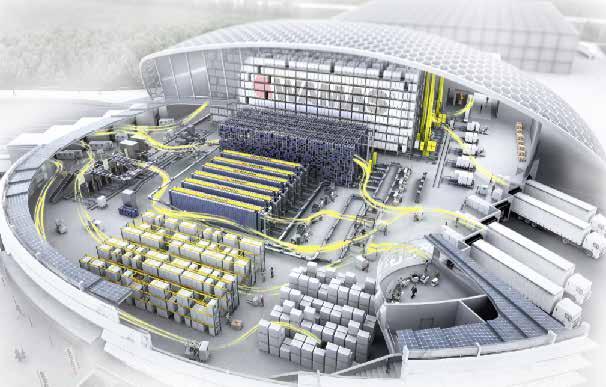
A greenfield project may make the most sense when starting from nothing or expanding rapidly since future-proofing the facility improves the ability to respond to current and future business requirements. While such facilities may be further away from urban areas and it might be harder to hire skilled labor, it is an opportunity to integrate automation equipment. It not only transforms the workplace and increases productivity, but it also better manages the energy usage within the facility, Akin to greenfield, retrofitting can help to revitalize urban areas. Through grants that are sometimes available, this option can be a cost-effective way to improve the current operation.
However, to upfit for meeting building codes, longer construction and installation
times are expected, especially if slab usability is an issue. These consequences may, amongst others, limit throughput or result in higher energy consumption.
Cold storage warehouse temperatures are broad, typically ranging from -34°C to 0°C but also consider chilled environment of up to 21°C. At the preliminary phase of planning the warehouse space, selecting the right storage system that enhances the cooled air circulation while increasing the storage density in the given footprint of the cold storage should be considered.
Semi-automated drive-in racking systems are typically deemed as an easy step towards ‘Automation.’ The highly compressed channel storage method uses channel vehicles such as the SSI Orbiter® and a corresponding docking station to put goods into and remove them from storage and guarantee higher space utilization and throughput.
In line with either the Last in-First Out (LIFO) or the First in-Last Out (FIFO) principles, the automatic reorganization
of the channel complies with the logic of whether the storage and retrieval of the pallets is from one side of the rack, or two sides of the rack.
Since the different storage levels can be accessed individually the filling ratio is higher than a conventional drive-in racking system, and it is more efficient and ‘safer’ as it eliminates the need for forklift drivers to access the pallets directly.
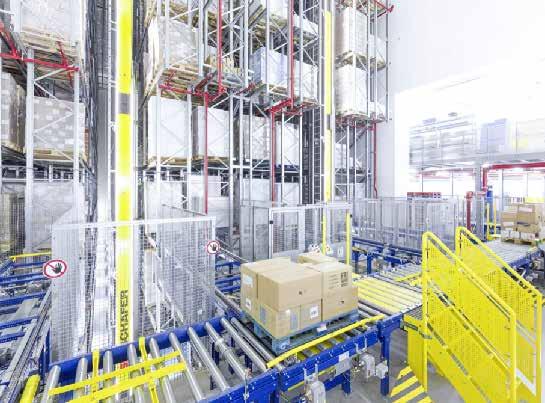
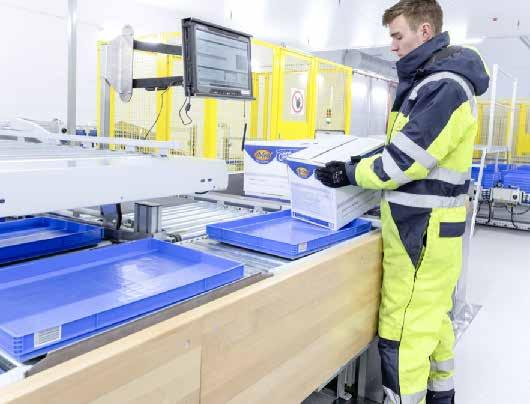
The Mobile Racking Storage Systems are racks built on a mobile base-plinth and guided by rails on the floor. Driven by electric motors, the mobile base moves along the rails to open one or more aisles to access the racks.
This creates new storage capacity in the spaces otherwise used for permanent aisles (increasing storage capacity by up to 85%) yet allows 100% access to goods easily. Integrated with smart lighting control options, the connected lighting system only illuminates when people are present and within the open aisle, providing a new degree of control over electricity use. With the night parking options, the system
separates all bases during the non-working period to enable excellent cold air flow circulation. To promote a safer warehouse working environment, all the systems are supplied with emergency-stop buttons, photoelectric access barriers, manual release systems, proximity sensors and safety light barriers. All these features ensure that the operation remains smooth, and the employees work safely inside the warehouse.
Most cold goods have strict schedules and cannot sustain any form of delay in storage or transportation. It is important to ensure the storage system can handle incoming goods and can cope with the upticks in consumer demand, seasonal production, and holiday crunches.
Storage & Retrieval Machines (SRM) and shuttle systems meant for pallets, trays, or bins and cartons, but also autonomous AGV/AMR machines are key elements. A fully automated storage system installed within a high-bay warehouse, connected with conveying systems and intelligent software provides seamless integration into a cost-optimized logistics chain.
The Green Crane technology makes SSI SCHAEFER’s Exyz storage and retrieval machine (SRM) for pallets impressively energy-efficient. Conducive for various climates use, the SSI Exyz is compact, not only fulfilling the goals of maximizing available space (use of vertical space up to 45 m high), but it is also an effective
warehousing solution for large portion of stored goods with easy accessibility (singledeep, double-deep, and multiple-deep channel storage).
In combination with the SSI SCHAEFER ORBITER satellite, this is a kind of a ‘stepup’ for semi-automated channel storage solution and can achieve extremely high storage density.
Shuttle solutions for pallets–Highly dynamic and future-proof, these are the next step of an SRM working with a satellite unit for automated channel storage. With a separate lifting device and multiple singleor multi-level shuttles like the SCHAEFER Lift & Run Shuttle System (SLR), these multiply the performance of an otherwise single SRM, whilst providing the same high storage density in satellite operated channel storage.
The high throughput ability supports high performance environment, and most of all semi-automatic Goods-to-Person case picking.
Shuttle solutions for layer trays: Pallets broken down into layers and stored on trays, allow extreme performance in storage and retrieval process, particularly for operation of high case–picking requirements. The extremely flexible load-handling device reduces manual handling and allows for high performant manual goods-to-person or fully automatic case picking.
Storage solutions for container, bin and carton loads–Scalable solutions using Miniload cranes or shuttle systems that are capable of handling loads of varying dimensions. Multiple deep storage capability maximizes storage density whilst the selection of Miniload, Flexi Shuttle or Cuby aim to optimize the final solution according to different load and performance requirements.
The material flow process from storage and retrieval, picking and handling of the SKUs (Stock keeping units), the journey needs to be carefully designed to prevent unnecessary conciliatory between storage type and location, picking, packing and shipment, and the nature of the goods.
There are concepts important to adopt to minimize the time of these operations and performing them correctly, which can create more efficiency in even the most complex operation.
Clear visualizations and comprehensive tools that manage processes, resources, and stock levels facilitate the set-up of an efficient warehouse operation. Although there are a wide mix of warehouse automation technologies that would keep track of inbound and outbound goods is important, issues such as coordinating multiple systems often arise and the role of software looms larger. But what kind of security and surveillance capabilities does a software need to have?
Tailored solutions for all requirements, SSI SCHAEFER develops and implements scalable, energy efficient systems for all conditions. All the above systems can be controlled via the WAMAS® or SAP EWM (Extended Warehouse Management) logistics software, from mobile racks right through to multi-aisle high bay warehouses with storage-retrieval machines, shuttle solutions and conveying systems.
This all comes from one source and can even be made into a turn-key solution for warehouse renovations or construction of new warehouses with built-in fire prevention, for instance, sprinkler concepts or oxygen reduction.
With SSI SCHAEFER’s deep-freeze and temperature-controlled logistics, all legal obligations are implemented as standard. This includes HACCP hygiene standards, BBD guidelines, and the required traceability.
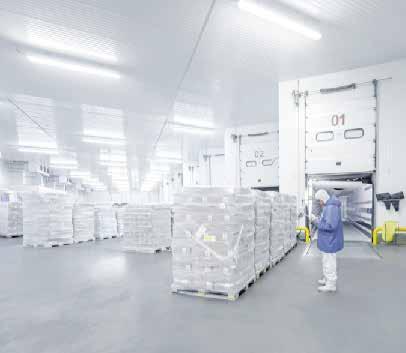
Future-proof logistics solutions need to seamlessly blend in with your individual processes. They must be infinitely variable and able to flexibly adapt to new framework conditions. You need specialists for this. You need experts who do not just focus on individual systems and services, but on full solutions.
In the context of cold-store solutions this will also include, but not be limited to external systems such as:
• Using airlocks between different temperature zones.
• Separate labor-intensive working areas, place them into non-freezing environment.
• Limited product exposure in non-chilled areas.
• Customizing the rack design to the desired needs and saving space.
• Making use of data analysis and simulation to produce the most efficient material flow design.
Privately owned, developed, and operated infrastructure megaproject in Saudi Arabia has swiftly ascended to international prominence, gaining acclaim within an incredibly short period since its inception. The extraordinary success of King Abdullah Port is a testament to visionary leadership, strategic planning, and an unwavering commitment to excellence.
The Ports Development Company (PDC), the owner and developer of King Abdullah Port, is the first ‘privately’ owned and funded port facility of Saudi Arabia and the Middle East region.
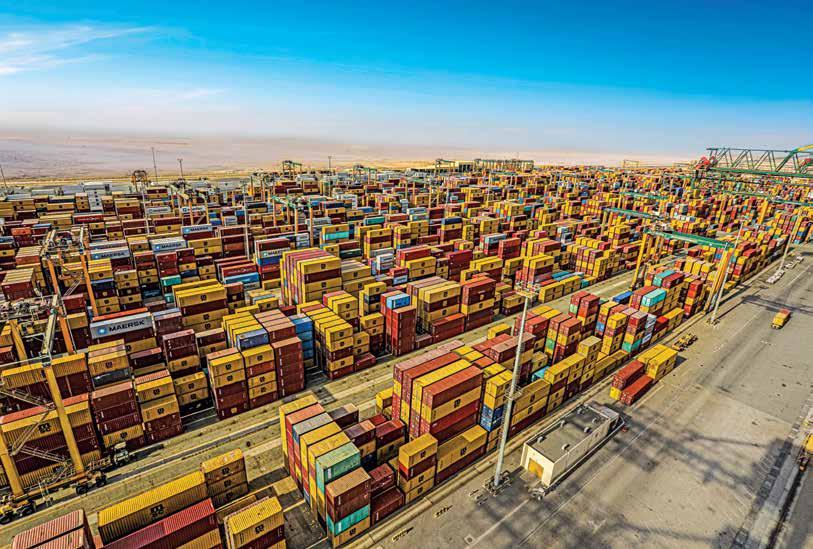
Strategically located at the confluence of the most vital global trade routes, King
Abdullah Port enjoys close proximity to key Saudi cities, including Jeddah, Holy Mecca, Al Medina, Yanbu, Riyadh, and Neom, as well as neighbouring countries. Its direct access to extensive transportation networks facilitates cargo movement throughout the Kingdom and the rest of the region, further enhancing its role as an enabler of Saudi Arabia’s logistics infrastructure.
Within a mere four years of its operation, King Abdullah Port has secured a spot among the world’s top 100 ports, a remarkable achievement that showcases its growing
influence on the global stage.
The World Bank and S&P Global Market Intelligence’s 2022 Container Port Performance Index report named the port as the most efficient container port globally, highlighting its relentless pursuit of operational efficiency and innovation.
The port’s astounding rise can be attributed to its strategic alignment with Saudi Arabia’s ambitious Vision 2030 and the National Transport and Logistics Strategy. These national development plans have laid the foundation for the Kingdom’s transformation into an international logistics hub, with King Abdullah Port serving as an enabler of global trade.
In an era where global maritime trade and logistics are fiercely competitive, King Abdullah Port emerges as a leader in innovation, setting new benchmarks for operational excellence.
“As we navigate the dynamic landscape of the global maritime and logistics industry, King Abdullah Port remains steadfast in its commitment to pushing the boundaries of innovation, operational excellence, and collaboration. Our unwavering dedication to excellence and strategic foresight have positioned us at the forefront of private sector-driven state-of-the-art infrastructure development,” affirmed Jay New, CEO, King Abdullah Port.
“We are proud to contribute significantly to Saudi Arabia’s economy, and we will continue to build upon our successes as we forge ahead with our ambitious growth plans,” he continued.
Despite global trade uncertainties in 2022, King Abdullah Port reported impressive growth across nearly all metrics, showcasing its resilience and ability to contribute significantly to Saudi Arabia’s logistics infrastructure, an official press communique stated.
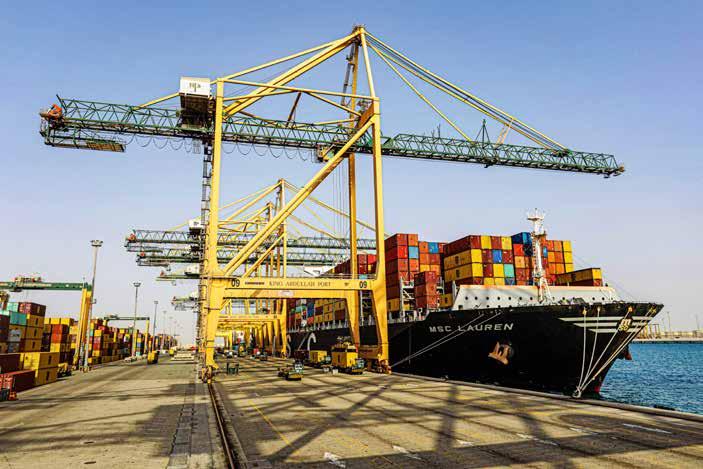
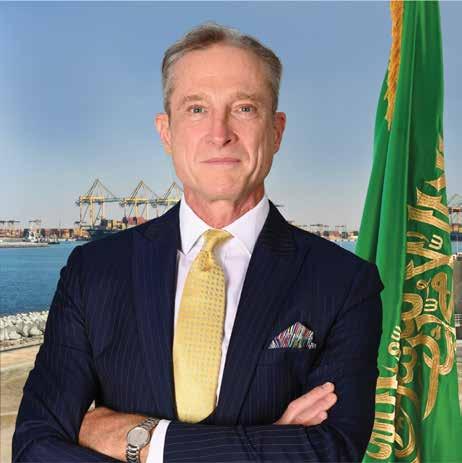
Notably, the non-containerized sector experienced substantial growth, with Breakbulk increasing by 143%, agri-bulk by 108%, and other bulk categories by 52%. Additionally, the port facilitated the shipping of 288 trucks to Australia as part of its first Ro-Ro trial.
King Abdullah Port’s accomplishments extend beyond mere numbers and rankings; they include groundbreaking milestones that have set new industry standards.
The port recently recorded the highest handling volume on a single vessel call in Saudi ports, processing 20,152 TEUs within 77.46 hours of operation on the MSC Renee. This impressive feat demonstrates the port’s exceptional efficiency and capabilities. The port was also named the ‘Second Fastest Growing Port in the World’ for the second time in four years by Alphaliner.
The port’s commitment to innovation and collaboration is further exemplified by its recent partnership with Tabadul, a leading provider of advanced transport management systems.
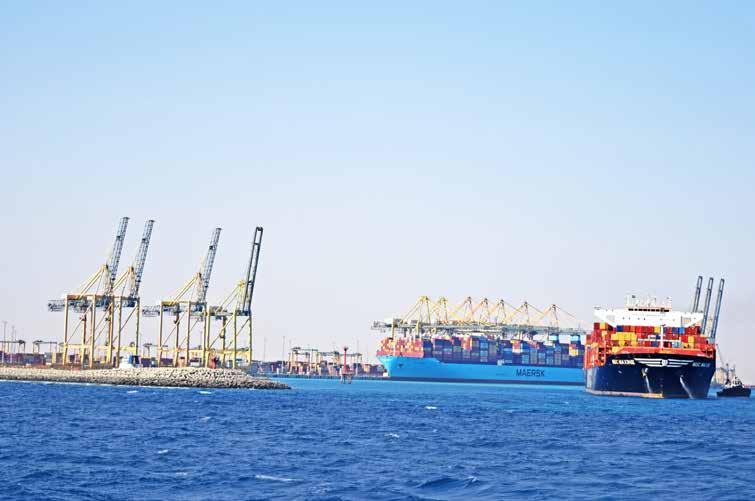
Sitting strategically at the crossroads of the most vital global trade routes interlinking three continents, King Abdullah Port, located on Saudi Arabia’s Red Sea coast, meets the Kingdom’s need for an advantageously located port that contributes to the achievement of its ambitious Saudi Vision 2030 by means of building a prosperous competitive economy with diversified income streams.
Besides its strategic location on the world map, its location at the local level is of no less importance. King Abdullah Port covers 17.4sqkm of King Abdullah Economic City, 90km north of Jeddah, the second largest city in the Kingdom, and its main trade hub.
The port location represents a vital element in the integrated transportation network of the Kingdom, as it is connected through a network of highways to many major and industrial cities, including Rabigh and Yanbu, which are witnessing a significant trade movement in petrochemicals in addition to being adjacent to the Industrial Valley, the latest and largest industrial area.
This strategic alliance aims to integrate King Abdullah Port’s smart gate system with Tabadul’s platform and connect with key government bodies, unlocking a plethora of opportunities and benefits for the services provided by the port. The primary objective of this collaboration is to boost operational efficiency, streamline processes, and enhance the overall performance of the port, solidifying its position as a crucial player in the global economy.
As King Abdullah Port continues to
break new ground and redefine industry standards under the visionary leadership of its CEO Jay New, it serves as a shining example of the potential that lies within private sector-driven infrastructure development. Its inspiring story of unwavering dedication to excellence, strategic foresight, and innovative thinking has undoubtedly captured the attention of the global maritime and logistics community at large, the press statement concluded.
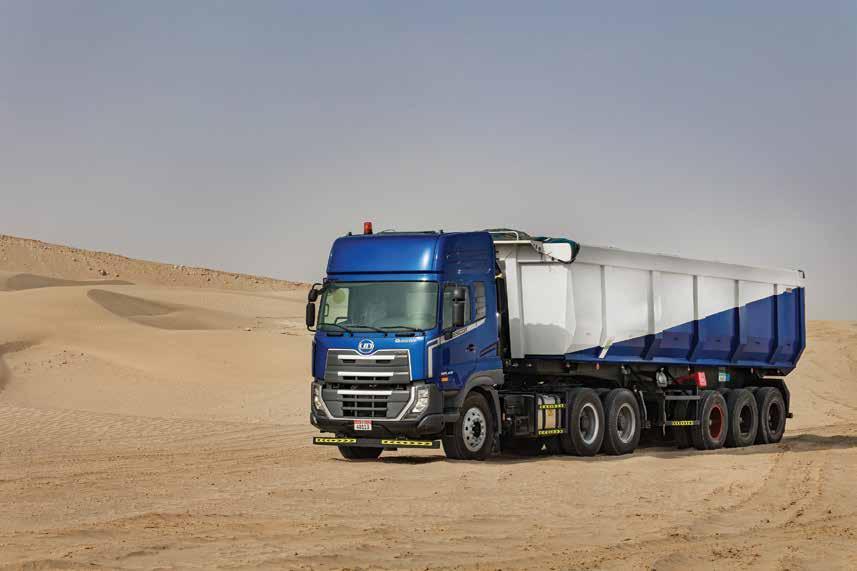


Calls for companies to embrace Circularity and become Regenerative

In recent years, global supply chains have met with unprecedented levels of disruption in virtually every facet of their businesses and operations. Such factors have caused the supply chain to grow everincreasingly more complex. This is felt most keenly within the logistics industry sector. This has necessitated the need for the industry to adapt, to find the most efficient ways for importers, manufacturers, and distributors alike to get goods into the hands of consumers.
To stay in business, an awareness of how logistics are reshaping is essential. This includes approaches to both technology and organizational management, namely, what the future holds.
It’s for this reason that we invited Sergio Maccotta and Ahmed AlFaifi, two Senior Vice Presidents from top global technology titan SAP, and regular contributors to Global Supply Chain, to each author a first-person article as they see fit to effectively synopsize and assess their take on the challenges on hand and offer real-time technology solutions to counter these—Editor.
With 93% of companies in the MENA region recognizing sustainability as an important business objective, digital transformation in the supply chain allows you to meet and exceed sustainability benchmarks while also innovating and growing your business, affirms Sergio Maccotta, Senior Vice President for SAP Middle East Africa–South. The effects of companies neglecting to adopt more sustainable business practices are becoming more and more visible. Customers, employees, and investors are increasingly rejecting those falling behind in establishing sustainability goals.
The United Nations declared the 2020s the ‘Decade of Action’. Companies across the Middle East are increasingly focused on sustainability and raising awareness by hosting COP 27 in Egypt and COP 28 in Dubai (2023).
Climate change, circular economy, ESG (Environmental, Social & Governance), and sustainability have become business priorities. Global supply chains are front and centre to these challenges but also present many opportunities for innovative solutions.
The good news is that businesses in our region are picking up on the many opportunities and taking action. A recent YouGov survey of companies in the MENA region commissioned by SAP showed a

strong commitment towards sustainability and a willingness to invest in technology to achieve these goals across the MENA region.
93% of companies surveyed viewed sustainability as an important business objective within their organization, with 47% saying it was vital to their success— similarly, 94% viewed technology and innovation as essential to achieving their sustainability goals.
Interestingly, companies also recognized the financial implications of sustainability policies. More than 90% expected their organization’s financial performance and sustainability strategy to connect in the coming 12 months. With SAP, the same processes for managing financial transactions can effectively measure and manage a company’s carbon footprint.
In the Middle East, for example, SAP has been working with customers such as GWC and other leading names in the logistics trade to ensure they meet their sustainability objectives and those of their partners and customers.
It is never too late to embark on a sustainability journey or to deepen a company’s commitment to saving the planet. There are six actions companies can take today to achieve a sustainable supply chain.
Sustainability must be central to companies’ overall business strategy in the Middle East.
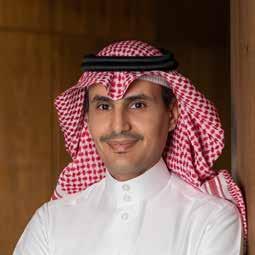
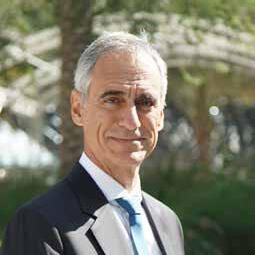
Business leaders need to examine their business network’s functions and identify sustainability weaknesses within and outside their organization.
For example, supply chains are a major contributor to waste carbon emissions
and are, therefore, a significant area of opportunity for improvement. Creating measurable goals to improve a company’s supply chain can restore the confidence of customers, investors, employees, and other stakeholders that the organization is taking action to become more sustainable.
An example of a measurable goal is ‘to become carbon neutral by 2030’ or ‘to eliminate the use of single-use plastic across all operations in the next 18 months’.
Step two is for business leaders to refine their operations by measuring their performance and capturing data across the supply chain.
Sustainability must extend from the design to the end of life of a product: from the initial design to the sourcing of raw materials, and manufacturing of goods, all the way to last-mile logistics and even to product usage, returns, and recycling processes.
Having sustainability data from within an organization and across the network of partners will also help keep companies accountable, as it is easily sharable with suppliers, shareholders, industry associations, regulators, and customers to ensure they are meeting the sustainability goals they’ve set forth.
SAP has sustainability metrics built into many of its solutions and standalone sustainability solutions.
After an initial data capture, supply chain leaders should ensure they are accounting for and managing climate-related emissions across all parts of their supply chain, including suppliers, contract manufacturers, logistics service providers, and other trading partners.
A lack of visibility across a company’s supply chain is typically why business leaders struggle to manage the total carbon footprint of products. By employing technology such as SAP solutions to provide the visibility they need across their supply chain, business leaders can then reduce their
company’s end-to-end carbon footprint.
Making changes to the supply chain may seem like an enormous undertaking, but it will undoubtedly pay off in the long run with a more loyal customer base.
Technology can help companies reduce, reuse, recycle, and use reclaimed materials to minimize waste and ultimately adopt a circular business model.
To achieve circularity and become regenerative, companies must design products with their end of life in mind. R&D leaders and product designers should ask themselves questions, such as ‘How will the product be refurbished, repurposed, reused, or returned to the earth,’ and ensure that no non-biodegradable packaging materials end up in oceans or landfills.
Sensors can track which products are causing damage to the atmosphere and feed that back into the design process for future product developments to help meet our corporate commitments.
When rolling out a sustainable business strategy, companies must have buy-in and support from the entire workforce. This starts with creating a diverse and safe space and placing emphasis on human rights, equality, environmental health, and safety while providing professional development opportunities for talent, such as training and reskilling programs. Establishing partnerships with suppliers, contract manufacturers, and logistics providers that share these values will be essential for success – sustainability is a team effort.
We are at an inflection point, and business leaders taking steps to prioritize their green line just as much as their bottom line will ultimately go a long way in addressing the world’s greatest environmental issues.
Embracing the future by exploring and leveraging the full power of AI will be a competitive edge.
Executives across industries are exploring AI-enabled supply chain management to stay ahead of change and improve demand forecast accuracy.
AI can manage and analyze large amounts of supply chain data, identifying trends and making predictions about future concerns. AI solutions are fast, efficient, and tireless, improving efficiency in a supply chain.
AI capabilities embedded in SAP solutions enable increased visibility, control, and quick actions toward prevention with predictive emissions forecasting.
To thrive in today’s volatile business environment, supply chain resilience is key. Here, Ahmed AlFaifi, Senior Vice President and Managing Director, SAP Middle East Africa-North, details how SAP’s focus on integration, end-to-end support and leveraging the power of AI is helping companies in the Middle East establish agile and robust supply chain processes.
In unpredictable business environments, the supply chain is a key differentiator that can help companies in the Middle East achieve a competitive advantage.
To build a resilient supply chain that enables successful navigation of volatile markets, companies need to hedge risk and flexibly engage external resources by operating highly responsive supplier networks. They also need to increase operational efficiency by optimizing the flow of goods and increasing asset and warehouse utilization.
Delivering better customer experiences is key, with streamlined logistics execution crucial to helping regional companies fulfill the promise of omnichannel commerce.
In addition, companies must work toward sustainability objectives by providing supply chain planners with
insights into environmental and social impacts as well as emissions reporting and analytics. Companies in the Middle East are realizing this, with a recent YouGov survey commissioned by SAP finding that 62% of companies in the region had planned to address sustainability in their supply chain as a specific sustainability goal over the next 18 months.
Governments in the region are also turning their attention to supply chains. Saudi Arabia’s Ministry of Transport & Logistics Services recently laid out an ambitious strategy to grow the kingdom’s logistics sector market size to US$ 15.4bn by 2030 and position it as a global logistics hub, for example. Similarly, the Global Supply Chain Resilience Initiative (GSCRI) was launched last year to attract local and international investments in the supply chain sector.
The private sector has also been focusing attention on boosting supply chains. Earlier this year, SAP announced the establishment of its global SAP Business Network within Saudi Arabia. The move will enable Saudi public and private enterprises to trade, buy and sell on the world’s largest business digital network in 190 countries, with millions of trading partners conducting transactions worth more than US$ 5trn annually.
There are three key factors to consider when employing technology to accomplish all the above objectives, namely, integration of logistics processes based on best practices; leveraging advanced technologies such as AI; and ensuring that the solution if fully comprehensive across all supply chain functions.
In terms of integration, SAP’s supply chain logistics and order fulfillment solutions support end-to-end logistics processes. They also combine Internet of Things–based technology, AI, advanced analytics, and blockchain to improve visibility, provide insights, and increase traceability of materials and processes.
Using SAP solutions, businesses in the Middle East can integrate processes in real
time across warehouse management, yard logistics, transportation management, and logistics networks. They can also connect with global business partners for smooth logistics execution across modes of transport.
AI-powered insights, recommendations, and automation built into SAP applications, alongside pre-trained AI models to address specific functional needs, empower organizations to transform every aspect of their supply chain faster and with less risk. With a connected design-to-operate business process, different functional teams can easily communicate and balance supply chain trade-offs.
To give an example, with visibility into planning, manufacturing, and logistics, it is possible for a company in the Middle East to use advanced analytics to simulate whether it is best to pay for overtime production at a given plant or incur transportation costs from different plants.
Additionally, supply chain planning and manufacturing can work together to model and refine actionable production and transportation plans that align schedules across business functions and with trading partners. Moreover, all business functions can gain greater visibility and foresight through an AI-powered supply chain control tower that detects and analyzes activities across the extended supply chain and takes preventive actions to mitigate bottlenecks.
The result is an efficient and collaborative effort across the enterprise that grows agility and resilience across the supply chain.
SAP solutions are also sufficiently comprehensive to provide end-to-end support for supply chain logistics in the region, as is evident if we consider each step of the process.
In terms of order promising, the SAP S/4HANA ERP solution for advanced ATP provides rich order-promising functionality, enabling companies to prepare for
unexpected events and manage shortage situations quickly. They can manage business processes and improve service levels, lead times, and goods in stock with in-depth analytics and intelligence.
For warehouse management, the SAP S/4HANA Supply Chain solution for extended warehouse management enables companies to manage high-volume warehouse operations and integrate complex supply chain logistics with their warehouse and distribution processes. Furthermore, the solution helps companies achieve high levels of visibility and control. They can optimize inventory tracking, cross-docking, distribution operations, multichannel fulfillment and achieve warehouse automation and more – all in real time.
Similarly, the SAP Yard Logistics application helps companies run more-efficient, profitable, and sustainable supply chain logistics by maximizing their visibility into yard processes. In addition, the application offers a range of visualization and reporting tools that enable them to accelerate their yard processes and use resources more efficiently with improved insight and control.
For transportation management, the SAP S/4HANA Supply Chain solution means companies can consolidate orders and maximize the return on their transportation spend. The solution enables companies to forecast demand and shipment volumes accurately and fine-tune transportation planning.
They can enhance freight, fleet, and logistics management to gain real-time visibility into global transportation and domestic shipping across transportation modes and industries while supporting sustainable logistics goals.
Another vital aspect of the SAP offering is that customers benefit from an open logistics network that connects business partners for intercompany collaboration and insights. SAP Business Network for Logistics provides a central entry point to manage logistics transactions, exchange documents with key business partners, and gain transparency across the value chain through an open, network-of-networks strategy.
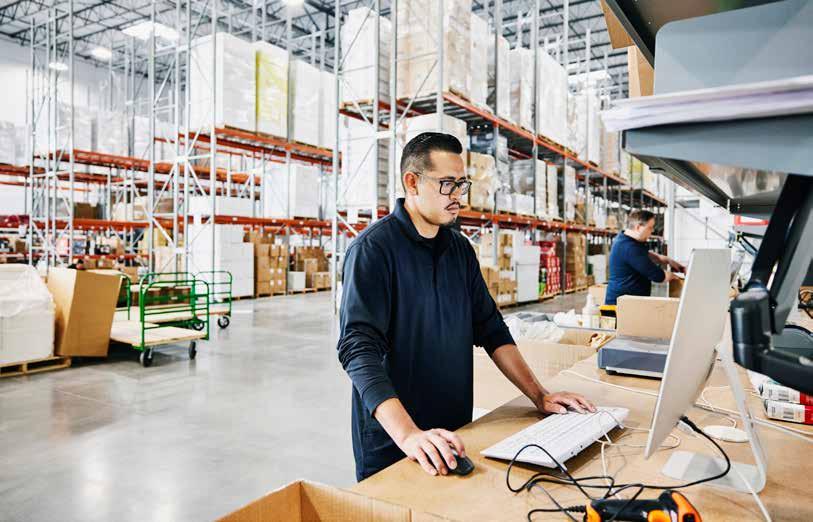
There is a growing reconsideration of the significance of globally dispersed supply chains
Navigating a challenging business and an increasingly digital-centric landscape requires technology to play a central role in updating the world’s supply chains, contends Mike Bhaskaran, Group Chief Operating Officer, Digital Technology, DP World.
In the past three years, the Covid-19 pandemic, the simmering trade wars and geopolitical tensions across the globe have transformed how trade and supply chains work across the world.
An increasingly fragmented trade landscape coupled with a reimagining of the globalised marketplace, is challenging a logistics industry that also must cope with legacy and analogue-based supply chains. Geopolitically, the world looks fragmented. The imposition of sanctions
and export controls stemming from the Ukraine conflict has highlighted the potential disruptions to supply chains.
These politically driven challenges to supply chains have led to inflationary pressures, impacting food prices, the global cost of living, and energy expenses due to the decreased availability of oil and gas from Russia.
As a result, there is a growing reconsideration of the significance of globally dispersed supply chains, with regional trade blocs and individual nations being relied upon to unlock these chains.
Earlier this year, DP World launched the ‘Trade in Transition 2023 Economist Impact’ report. The report captures private sector sentiment across the world based on a global survey of 3,000 respondents in North America, South America, Europe, the Middle East, Africa and Asia Pacific. 96% of
respondents in the Trade in Transition 2023 report said that geopolitics is driving them to reconfigure trade operations.
Many of these companies around the world are reconfiguring their supply chains through strategies that enhance resilience and minimise transport costs such as friendshoring, nearshoring, and reshoring. 20% of respondents said they are switching to regional suppliers, an increase of 8% from last year’s report, while 15% said they are shifting manufacturing and suppliers from foreign markets to their companies’ local market, a 10% increase in reshoring from the previous report.
Our Trade in Transition 2023 report also found that there are key strategies that companies are following to maximise this new reality. Implementing innovative technology and increased digitalisation are fundamental to achieving greater resilience in regionalised supply chains.
For example, 30% of executives surveyed in the ‘Trade in Transition 2023’ report said that digital tools for inventory management are the most effective supply-side resilience strategy. Additionally, 35% of executives said they have started using advanced technologies in their wider value chain compared with 31% last year.
Overall, 29% of companies say they are planning to adopt digital technologies to enhance their supply chain operations such as DP World’s CARGOES Logistics and CARGOES Flow.
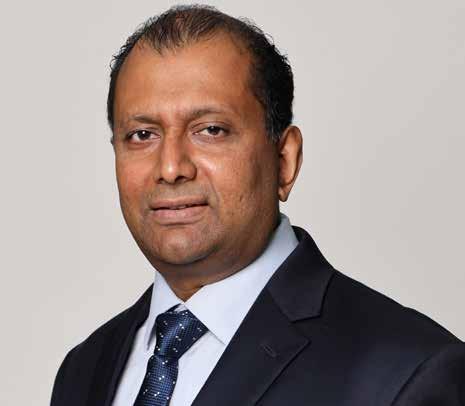
In aiming to ‘reglobalise’ world trade, technology will have to be at the heart of navigating the broader challenges and legacy supply chain frameworks. At DP World, we are committed to a focus on innovation.
For example, we created BOXBAY, which has a ‘High Bay Storage’ system that cuts down time and resources by using an automated container handling system that can stock 11 storeys high.
This mechanism creates 200 per cent more capacity than a conventional container terminal and is designed to be fully powered by solar panels on the roof. BOXBAY could also drop energy demands at ports by 40 to 60%.
This same innovative focus is also driving us to look at the efficiencies created by 5G and Web3. The UAE is an ideal testbed, pioneering technologies and IoT proof-ofconcepts that could revolutionise the way ports work.
Soon, we will boost our operations with our platform in the metaverse. DPMETAWORLD will allow us to create applications for container and vessel inspections, simulations of warehousing and terminal operations, and digital twins.
Also, there is an important case for technology to enhance sustainability. For example, there is a critical push for a net zero future for the world’s ports and terminals. Global shipping’s carbon dioxide (CO2) emissions increased by 4.9% in 2021. With shipping already accounting for 10% of global transport’s total emissions, the industry’s environmental
impact is firmly in focus.
Our response at DP World has been to progress electrification across our ports and terminals operations. At DP World Chile, we secured the first renewable electric energy certification for a port operator in South America.
While at DP World Callao in Peru the terminal is becoming fully electric with its fleet of electric terminal vehicles and cranes reducing the use of 1.5mn litres of diesel every year. Furthermore, DP World Rotterdam World Gateway in the Netherlands is now fully electric including 84 electric lift automated guided vehicles (AGVs) that operate on more sustainable electricity, and 18 state-of-the-art cranes that capture and regenerate their own energy.
Technology has a role to play in both enhancing supply chains and making them sustainable. And through further collaboration and partnership across our industry and governance enhancements globally, we can mitigate the broader challenges we all face from legacy supply chains and external factors.
The Aviation Training Center’s mandate is to deliver high-quality training solutions
The Center has been tasked to grow and advance the aviation sector in Dubai and beyond, by providing training programmes that meet industry standards and empower professionals to excel in their aviation careers.
The Aviation Training Center Dubai (ATC Dubai) is a leading aviation training institution dedicated to excellence, safety, and professional development.
With a commitment to training excellence, safety-first approach, continuous professional development, cuttingedge facilities, regulatory compliance, and industry partnerships, ATC Dubai plays a pivotal role in equipping aviation professionals with the skills and knowledge required for success in the industry.
Global Supply Chain interviewed Neeraj Arora, Managing Director, Aviation Training Center, Dubai, exclusively to get the lowdown on the institution and its impact on the aviation sector.
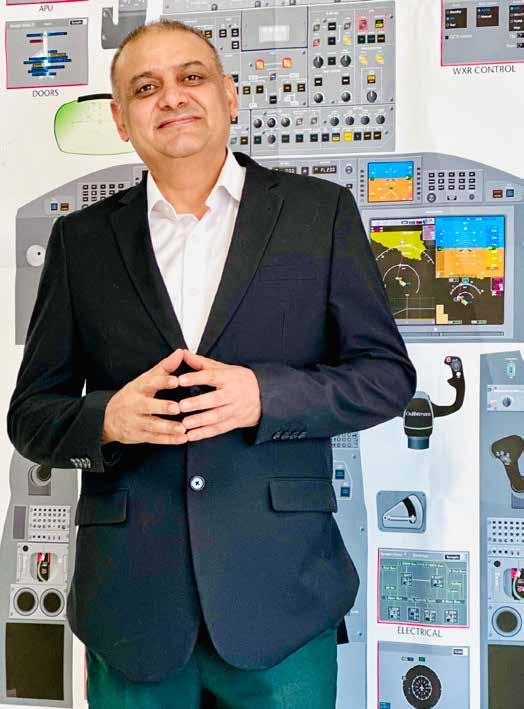
Global Supply Chain (GSC): When was Aviation Training Center set up and where? What courses do you offer and the duration?
Neeraj Arora (NA): The Aviation Center started as a training and academic institution in September 2013. Our course offerings are holistic. However, we focus on Dangerous Goods Transportation, Supply Chain and Management, Aviation and other industry soft skills.
GSC: What constitutes dangerous and hazardous goods?
NA: It is important to note that the classification and labeling of dangerous goods are governed by various international, and national regulations,
such as, International Maritime Dangerous Goods (IMDG) Code, International Civil Aviation Organization (ICAO) Technical Instructions, IATA and UAE federal body General Civil Aviation Authority (GCAA) as local regulatory authorities.
These regulations provide guidelines for the safe handling, storage, transportation, and disposal of dangerous goods to minimize risks and ensure the protection of individuals, property, and the environment.
GSC: Is your expertise focused in the aviation sector?
NA: ATC Dubai (Aviation Training Center Dubai) specializes in providing expertise in the aviation sector, also Supply chain course approved by CILT. The training center is dedicated to offering a wide range of aviation-related courses and programmes to cater to the needs of aviation professionals and organizations. The focus of ATC Dubai’s expertise lies specifically within the aviation industry.
GSC: Who is the targeted audience and what is the scope of the curriculum?
NA: The targeted audience can vary depending on the specific programmes and courses offered. However, in general, the primary audience for aviation training centers includes aspiring Aviation Airport / Airline / Cargo / Logistics / International trade professionals as well as those involved in general transportation, aviation regulators and safety procedures compliance.
GSC: Are you also a certification / regulatory body recognized by the concerned authorities?
NA: ATC Dubai is approved by multiple reputable organizations such as the General Civil Aviation Authority (GCAA), International Air Transport Association (IATA), and Chartered Institute of Logistics and Transport (CILT).
GSC: How are you supported, what is your revenue model?
NA: Our revenue streams comes from training fees and consultancy.
GSC: How serious is the issue of dangerous / hazardous goods? Is there a consciousness of the gravity of this
situation in the industry?
NA: The issue of dangerous or hazardous goods is extremely serious in the aviation industry, and there is a strong consciousness of the gravity of this situation among industry stakeholders, including regulatory authorities like the General Civil Aviation Authority (GCAA)
The GCAA, as the regulatory authority in the UAE, is responsible for enforcing the regulations related to dangerous goods in the aviation industry.
GSC: How important is the knowledge of dangerous / hazardous / combustible goods for the logistics and supply chain industries?
NA: Knowledge of dangerous, hazardous, and combustible goods is of utmost importance in the logistics and supply chain industries. Here are some reasons why this knowledge is crucial:
Safety: The primary concern is the safety of individuals, property, and the environment. Dangerous goods pose potential risks during transportation, storage, and handling.
Legal and Regulatory Compliance: The transportation and handling of dangerous goods are subject to stringent regulations and legal requirements imposed by international, national, and local authorities.
Risk Management: Understanding dangerous goods enables effective risk management within the logistics and supply chain operations. This includes identifying potential risks associated with specific goods, implementing appropriate safety measures, and developing contingency plans to mitigate risks and respond to emergencies effectively.
Storage and Handling Considerations: Dangerous goods often require specialized storage conditions, such as temperaturecontrolled environments, proper ventilation, or specific handling procedures. Having knowledge of these requirements helps logistics professionals ensure the goods are stored and handled safely, minimizing the risk of accidents, leaks, or reactions with other substances.
Documentation and Communication: Accurate documentation and effective communication are essential for the transportation and handling of dangerous
goods. Logistics professionals need to understand the regulatory documentation requirements, such as proper labeling, packaging, and shipping documents.
Supply Chain Continuity: A comprehensive understanding of dangerous goods allows logistics and supply chain professionals to plan and execute operations efficiently.
GSC: Transportation of batteries has been a bone of contention. Is now there an agreeable / appropriate mechanism for transporting batteries?
NA: Transportation of batteries has indeed been a topic of concern and regulatory focus due to their potential risks. However, there are established guidelines and regulations in place by IATA/IMDG and GCAA that provide appropriate mechanisms for the transportation of batteries.
We have a dedicated One Day Training programme on the Transportation of Lithium Batteries by Air that gives clarity to those involved in handling Lithium Batteries movements.
GSC: Are there now written rules, mechanisms and protocols in place for transporting dangerous goods and how are these audited, monitored and oversighted externally or independently?
NA: The transportation of dangerous goods is subject to a robust system of auditing, monitoring, and oversight. Regulatory authorities, industry associations, and accredited bodies work together to ensure compliance with regulations, conduct inspections, provide training and certifications, and investigate incidents.
This multi-layered approach aims to enhance safety, mitigate risks, and promote the responsible transport of dangerous goods.
GSC: Is it now much safer to transport goods now than say 10 or 15 years ago?
NA: While safety in the transportation of goods has improved over the years, it is important to note that challenges and risks still exist. Continuous efforts are needed to stay updated with evolving technologies, regulations, and industry best practices to ensure the ongoing safety and security of goods during transportation.
Ambitious transport infrastructure projects are boosting trade and leading the UAE to a clean future
Infrastructure is critical for the economic progress of a nation. It creates jobs, improves people’s quality of life, enables social inclusion, and is also essential to fulfil sustainability goals. Transport infrastructure is key to enable the swift movement of goods and connect people, both of which drive economic growth, emphasizes Amadou Diallo, CEO, DHL Global Forwarding, Freight Middle East and Africa.
The UAE has a rich heritage of developing world-class infrastructure projects to support economic progress and more recently, to boost its national diversification agenda. Over the past few decades, ambitious projects have taken root on UAE soil including manmade islands, expansive shopping malls and the tallest residential towers, to name a few.
More recently, the UAE Government is investing in ambitious megaprojects that are set to transform the nation and position the country as a regional and global powerhouse. The newly launched SeaWorld Abu Dhabi, Atlantis the Royal in Dubai, and the Louvre Abu Dhabi Residences are a few tourism and hospitality projects that are expected to boost visitor numbers.
In addition, The Zayed National Museum, Dubai Vertical City, and the Sharjah Floating theatre are expected to position the country as a vibrant and innovative hub for tourism, business and investment.

Equally, ambitious transport infrastructure projects are boosting trade and business competitiveness and paving the way for the UAE to transition to a clean future. Rail is one of the most energy-efficient transport modes.
According to estimates, it uses 80% less energy than trucks per ton of freight carried and accounted for just 4% of the transport industry’s global emissions in 2019.
Unsurprisingly, governments around the
world are making plans to increase rail’s sustainability to reduce their carbon footprint and lower costs throughout operations and supply chains.
Etihad Rail is one of the foremost infrastructure projects expected to revolutionize trade and transport in the UAE and the wider GCC region. The freight operations of the national railway will transport 60mn tonnes of goods annually and connect 4 major ports and 7 logistics centres across the country, namely Ruwais, Industrial City of Abu Dhabi (ICAD), Khalifa Port, Dubai Industrial City, Jebel Ali Port, Al Ghail and Fujairah Port.
This will be critical to support the UAE’s burgeoning logistics market, already touted to be one of the world’s key global logistics hubs. According to recent estimates, the UAE’s logistics market will grow at a CAGR of
6.2% between 2023-2028.
DHL Global Forwarding has been supporting the UAE’s growing capacity requirements through its expertise in rail and multimodal transport solutions. Recently, the company signed a strategic 20-year partnership with Etihad Rail to establish a joint venture company that will enable it to use Etihad Rail’s network to conduct its main operations within the UAE.
As one of the largest collaborations for the transport industry, the partnership will deliver significant benefits for businesses, strengthen end-to-end logistics and supply chain services for customers in the region, and offer an environmentally friendly alternative to cargo transportation.
To keep the momentum going, new technologies and further support from all stakeholders will be required, including policymakers, investors, suppliers, and rail service providers themselves, to expand investments and drive-up rail usage. Equally, new incentives for rail freight transport, such as reducing charges for track use and wider digitalization, will be necessary to encourage a shift to rail freight in the future.
The UAE is already on the right track when it comes to comprehensive infrastructure development that supports not just trade and logistics – but urbanization and inclusive growth. The future will be all about harnessing new technologies to drive this vision in the future.
Our SynQ software delivers data-driven intelligence that empowers your business by synchronizing the performance of your people, processes and machines. The result is a level of efficiency and performance you never thought possible.
swisslog.com
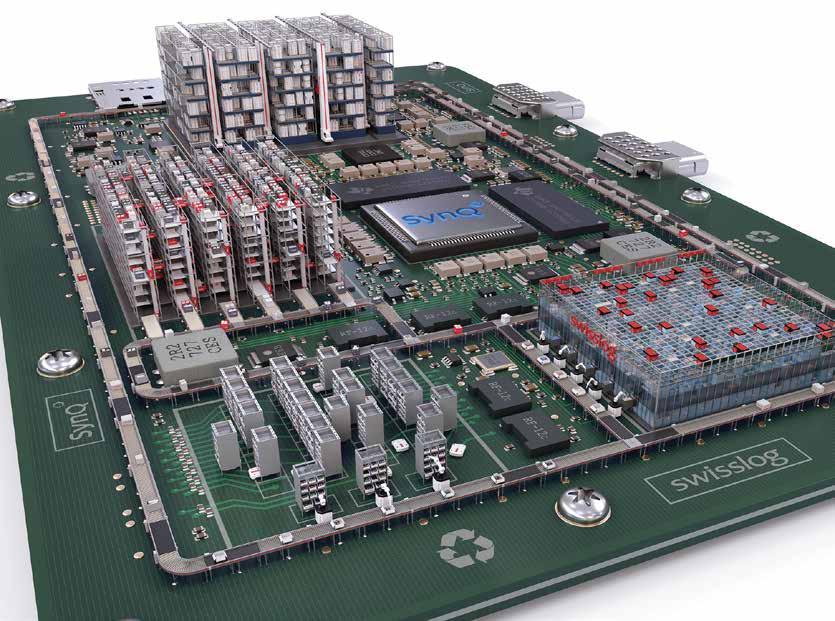
The K440 range is known for its exceptional reliability and optimal fuel efficiency
CONMIX, a Bukhatir Group company, and provider of Ready-Mix Concrete in the United Arab Emirates, has selected Renault Trucks for its latest fleet additions, the truck manufacturer announced recently.
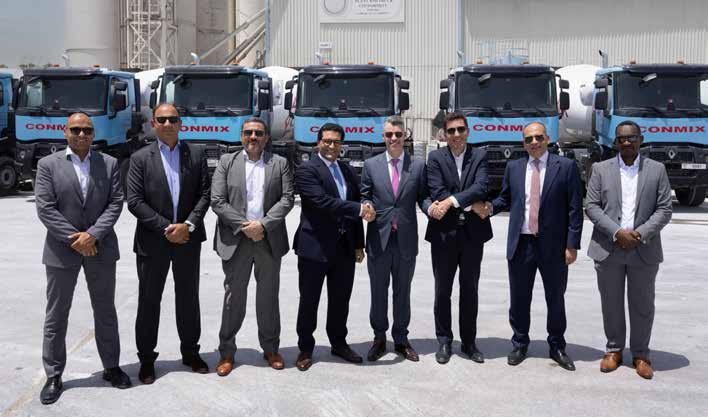
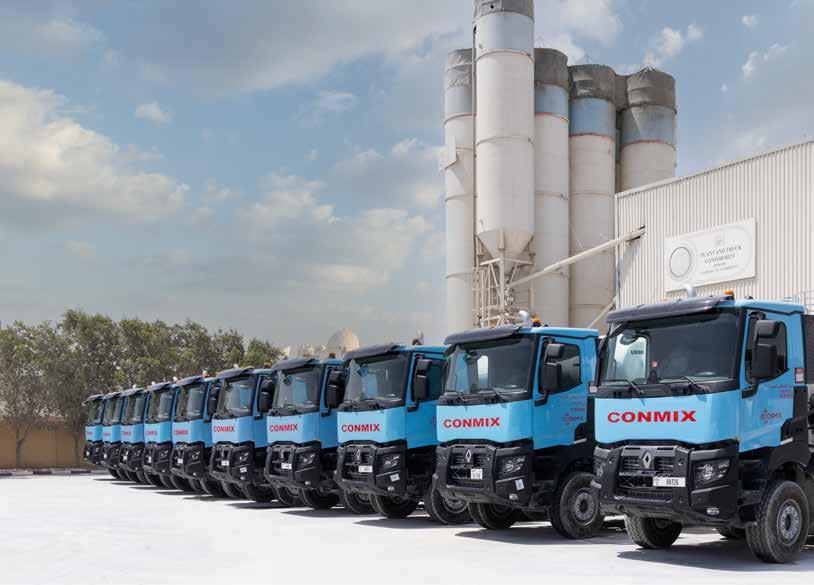
Supplied by Renault Trucks importer United Diesel, the fleet of commercial vehicles comprising 10 Renault Trucks
K440 P8x4 HEAVY E5 with Liebherr
12 CBM mixers ordered will be used to transport ready mix concrete across the United Arab Emirates.
CONMIX’s new additions, already in operation, are set to optimize their logistics of ready-mix concrete from their Production facilities of a combined capacity of 180,000 cubic metres per month.
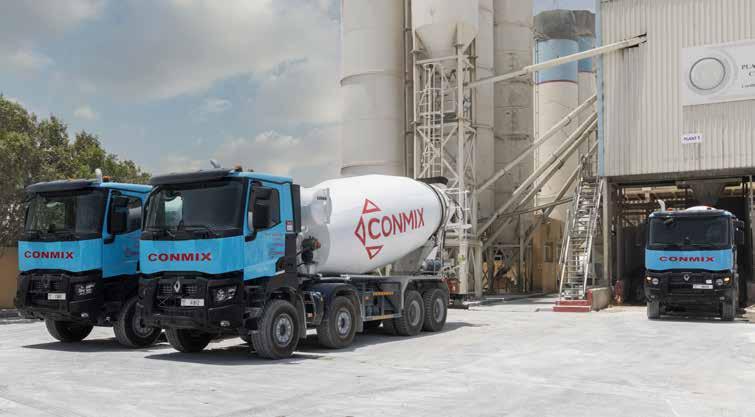
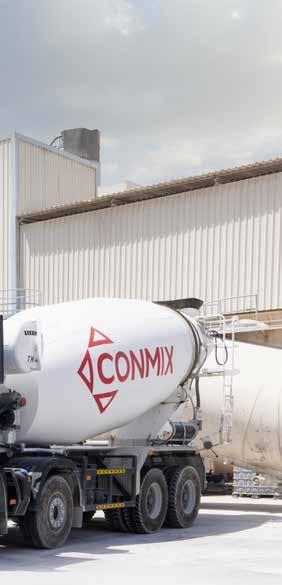
The Renault Trucks K440 are known for robustness, exceptional reliability, and optimal fuel efficiency to meet the needs of CONMIX’ operations and to ensure maximum productivity and safety for their drivers.
The K range models are equipped with an Optidriver manual gearbox with automated gearshifting, as well as Renault Trucks’ unique Optibrake exhaust braking system which, with a power rating of 300kW, promotes driver safety. Additional selling points include hill-start aid, wheel anti-slip regulation (ASR), anti-lock braking system (ABS), emergency braking assist (AFU) and an electronic parking brake (EPB).
“We are delighted to partner with Renault Trucks through United Diesel to strengthen our fleet with these ten new mixer trucks. At CONMIX, we are committed to deliver high quality Concrete solutions and services to our customers, and Renault Trucks’ reliable
and efficient trucks with Liebherr mixers will help us achieve that goal,” commented Ayman Ismail Ahmed, CEO, Bukhatir Group.
“This partnership is a testament to our commitment to investing in the latest technologies and equipment to enhance our operational efficiency and provide our customers with the best possible service,” he continued.
“It is with great pleasure and pride to announce that CONMIX has chosen Renault Trucks to satisfy its future concrete requirements by purchasing 10 new transit mixers,” remarked Tim Senior, General Manager, CONMIX.
“At United Diesel, we take immense pride in supplying our customer, CONMIX, with Renault Trucks to enhance their fleet. As a company, we provide the highest quality trucks, ensuring superior performance, maximum uptime, and optimal operation cost-effectiveness,” noted David Sawiras, General Manager, United Diesel.
“Renault Trucks has proven once again to provide the most efficient trucks in the region. This first deal with a major national company such as CONMIX is the start of a long partnership. We are confident that the quality of our Renault Trucks K and the comfortable cab for the drivers will emphasize the trust of our brand,” stated Guillaume Zimmermann, Commercial Director, Renault Trucks Middle East.
“As the entity responsible for overseeing the Advanced Trade and Logistics Platform (ATLP), the Department of Economic Development recognizes the importance of delivering exceptional service levels,” stated Dr Ali Hussain Makki, Executive Director, Logistics and Trade Facilitation Sector, Abu Dhabi Department of Economic Development.
n Maqta Gateway, the digital arm of Abu Dhabi Ports Group and part of the digital sector, has signed a service level agreement with the General Administration of Customs, Abu Dhabi and the Abu Dhabi Department of Economic Development (ADDED).
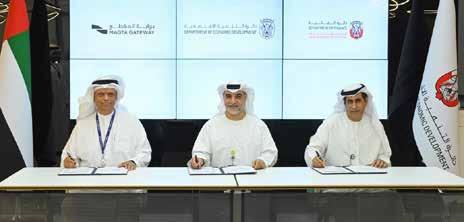
The agreement aims to provide digital customs services through the Advanced Trade and Logistics Platform (ATLP).
It serves as the official Single Window platform for trade in Abu Dhabi and
n AD Ports Group recently announced the signing of a Memorandum of Understanding (MoU) with the world’s largest producer of iron ore and nickel, and one of the largest logistics operators in Brazil, Vale SA (Vale), to develop a Mega Hub in Abu Dhabi for industrial complexes that produce low-carbon products for the steelmaking industry.
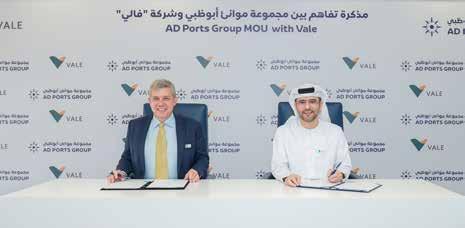
The agreement will see an allocation of land and related services from KEZAD for the Mega Hub, in addition to the development and management of a stateof-the-art handling facility at Khalifa Port, capable of accommodating Valemax vessels with a handling capacity of up to 50 million tonnes of cargo per annum. Furthermore, AD Ports Group will develop and manage conveyor infrastructure to transport iron ore and finished products to and from Khalifa Port and KEZAD and will be exploring commercial collaboration with Vale on the marketing and sale of various by-products of the manufacturing process in the UAE and the wider region.
has been developed and operated by Maqta Gateway under the supervision of ADDED, which plays a crucial role in simplifying services and trade in Abu Dhabi.
The agreement not only recognises the expected level of service to be provided to customers, but also aims to deliver a seamless customer experience to the Abu Dhabi trading community for shipments passing through eight border crossings in Abu Dhabi.
“This agreement is an extension of those efforts, aimed at enhancing efficiency in cargo movement and simplifying the user experience, ultimately, promoting global trade through Abu Dhabi,” remarked Mubarak Matar Al Mansouri, Executive Director of Customs Operations Sector, General Administration of Customs, Abu Dhabi.
“ATLP is a competitive digital trading environment which connects various government departments, private entities, and control procedures across ports and borders, serving as the primary trade gateway to Abu Dhabi,” commented Dr. Noura Al Dhaheri, CEO, Digital Cluster, AD Ports Group and Maqta Gateway.
“Growth and sustainability must go hand in hand, our collaboration with Vale signifies a key step in our contribution towards meeting the UAE Net Zero 2050 strategic initiative,” commented Captain Mohamed Juma Al Shamisi, Managing Director and
“Our ability to leverage this new concept of using low-carbon technology in the production of hot briquetted iron (HBI) signals the success of our products globally,” asserted Eduardo Bartolomeo, CEO, Vale.
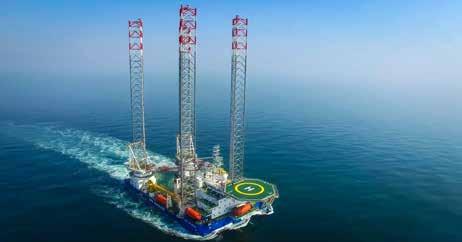
n ADNOC Logistics and Services recently announced that it has been awarded a US$ 975mn artificial island construction contract by ADNOC Offshore. This award is a significant milestone in ADNOC Logistics & Services’ (ADNOC L&S) strategy to pursue new growth opportunities. ADNOC L&S’ Integrated Logistics business unit is an end-to-end, fully integrated energy logistics services provider.
The provision of Engineering, Procurement and Construction (EPC) services in the integrated logistics business is a new offering by ADNOC L&S in line with its announced strategy to achieve significant ongoing growth, including expansion into new verticals.
This is the first major award for ADNOC L&S after it listed on the Abu Dhabi Securities Exchange (ADX) on 1 June 2023 following the highest demand globally for an IPO this year.
“Capitalizing on our project management expertise, end-to-end
logistics solutions, and strategic partnerships, ADNOC L&S is primed to execute major offshore EPC contracts that support our customers’ ambitious growth plans and deliver value to our shareholders,” commented Captain Abdulkareem Al Masabi, CEO, ADNOC L&S.
With a diverse fleet of 245 vessels and approximately 540 vessels operated and chartered annually, combined with its 1.5mn sqm logistics base in Abu
Dhabi and integrated coordination capabilities, ADNOC L&S is the region’s largest shipping and integrated logistics companies.
ADNOC L&S is targeting an average annual EBITDA growth in the low teens over the medium term. This growth will be driven by new contract awards, further expansion of its Integrated Logistics Services Platform (ILSP), and optimized redeployment of jack-up barges, a press communique concluded.
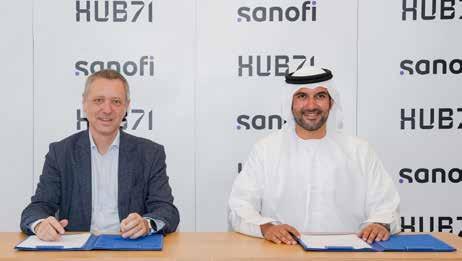
n Hub71, Abu Dhabi’s global tech ecosystem, has partnered with French pharmaceutical giant, Sanofi, to accelerate the development and commercialization of cutting-edge technologies in healthcare.
Through the strategic partnership, Hub71 and Sanofi aim to improve patient care and strengthen healthcare systems for the benefit of communities in the UAE and beyond.
As part of the agreement, Sanofi will present Hub71 startups with use cases and business development opportunities to drive breakthrough innovation in healthcare. With a mission to advance the UAE’s HealthTech industry, Hub71 and Sanofi will also foster greater collaboration among industry leaders to bolster local knowledge and expertise.
“We look forward to creating a powerful partnership that demonstrates the UAE’s leadership in shaping the future of HealthTech on the world stage,” remarked Ahmad Ali Alwan, Deputy CEO, Hub71.
“Our partnership with #Hub71 creates a pathway for us to bring the full force of
our legacy in scientific innovation along with our expertise in digital healthcare to transform how health services are delivered in the UAE,” commented Jean Paul Scheuer, MCO Lead, General Manager, Greater Gulf, Sanofi,
As a strategic sector, healthcare is being supported by over 30 HealthTech startups at Hub71 deploying technologies such as AI,
telemedicine, and wearable devices that are transforming the industry.
The global tech ecosystem’s corporate, government and investment partners are working together to shift the boundaries of healthcare through science and technology, providing entrepreneurs with a route to commercialize viable solutions., a press statement concluded.
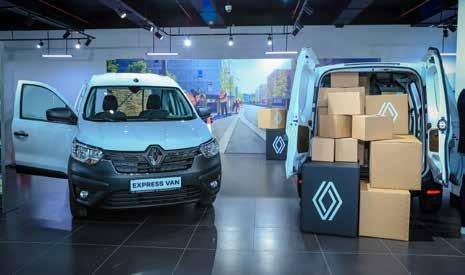
n Al Masaood Automobiles Renault has announced the launch of the all-new Renault Express Van. This innovative commercial vehicle is set to redefine the market with its high-quality combination of efficiency, practicality, and safety features, a press communique stated.
The Renault Express Van is designed to meet the needs of modern businesses, offering the perfect balance of performance and functionality. Its introduction to the Abu Dhabi market is expected to make a significant impact, providing businesses with a reliable and versatile solution to their transportation needs.
“It is poised to be a game-changer in the commercial vehicle segment, providing a high level of efficiency, practicality, and state-of-the-art safety features that will transform the way businesses manage their transportation needs,” remarked Bachir Gemayel, Sales & Marketing Director, Al Masaood Automobiles.
The Renault Express Van is powered by a fuel-efficient 1.6-litre engine, ensuring
smooth and reliable performance on the road. It has a generous cargo volume of up to 3.3 cubic meters, 191-meter loading length and a payload capacity of up to 750 kg, this vehicle. Additionally, the vehicle offers easy driving with cruise control and speed limiter, ensuring a comfortable and stress-free experience for drivers.
Safety is paramount in the Renault Express Van, which comes equipped with an emergency calling system that automatically connects the driver to emergency services in case of an accident. This feature, along with other advanced safety systems, ensures that drivers and their cargo are always well-protected.
n Dubai Airport Freezone (DAFZ), part of Dubai Integrated Economic Zones Authority (DIEZ), announced that its digital and fully automated logistic movement management system ‘DAFZ-WAY’ witnessed a 197% increase in transactions and a 44% increase in companies using the solution in 2022. DAFZ collaborated with Dubai Customs to launch the DAFZ-WAY gate pass system.
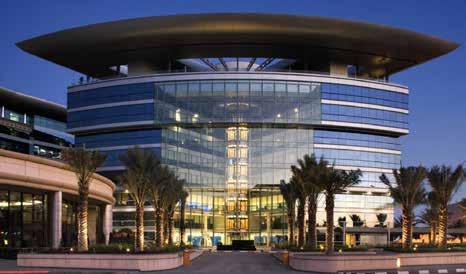
The launch of DAFZ-WAY is a testament to DAFZ’s ongoing efforts to promote the digital transformation of businesses operating in the freezone, while also helping them integrate into the business ecosystem of Dubai with ease and enable them to benefit from fast-track logistics and customs procedures.
DAFZ-WAY is a fully automated and easily accessible digital solution that enables DAFZ’s customers, cargo handlers, local companies, and other entities and individuals to seamlessly move goods through the free zone’s gates using a QRcode-based gate pass.
“The success of DAFZ-WAY represents a significant step forward toward defining DAFZ’s technological and innovative identity in the digital world,” commented Amna Lootah, Director General, Dubai Airport Freezone. “This initiative will further streamline our cargo processes by enabling
seamless transmission and integration of our data into Dubai Airport Freezone ‘DAFZ WAY” application. As a result, our customers will enjoy even better services and quicker turnaround times,” remarked Guillaume Crozier, Senior Vice President UAE Cargo and Global Cargo Strategy, DNATA.
19 - 20 December 2023
Riyadh International Convention & Exhibition Center (RICEC), Riyadh, Saudi Arabia
SAUDI ARABIA leads regional aviation development with a vision to triple airport capacity by 2030, linking passengers across 250+ destinations. Investment in transport related projects exceeds U$130 billion, including the new King Salman International Airport, with a 120 million passengers capacity by 2030 and 185 million by 2050 and the US$39 billion new national carrier, Riyadh International Airlines (RIA).
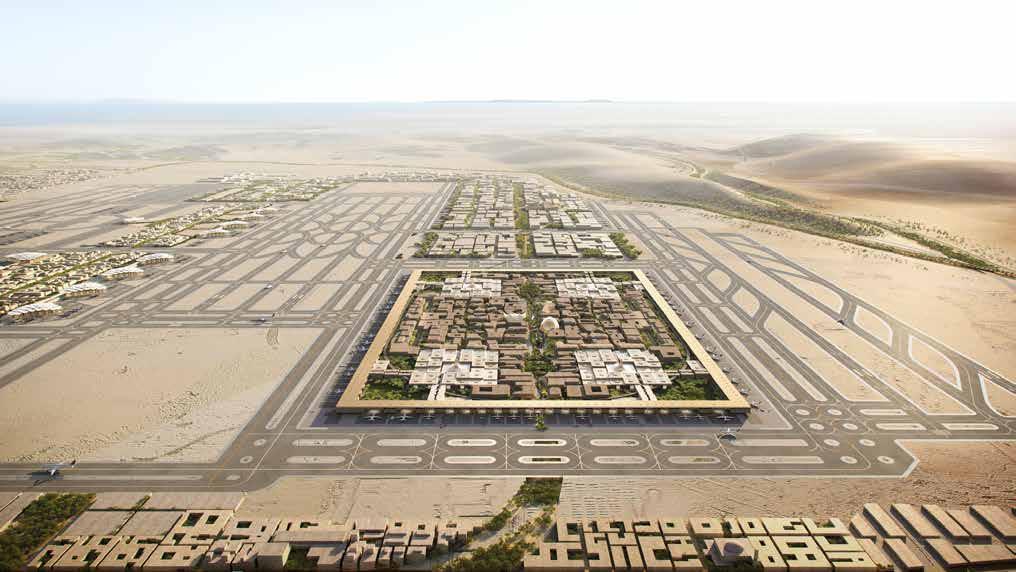
Be part of the Middle East's Largest Aviation Developments at Saudi Airport Exhibition.

5000+ International Visitors
200+ Global Exhibitors
200+ Regional Buyers
500+ Delegates
50+ Participating Countries
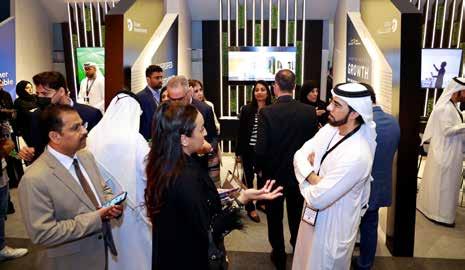
n Dubai Investments, the leading diversified investment company listed on the Dubai Financial Market (DFM), has reinforced its position as a strategic powerhouse within the UAE’s economy at the just-concluded two-day ‘Make it in the Emirates’ Forum held in Abu Dhabi in the UAE capital.
The Forum aimed to highlight the vibrant business landscape and the investment opportunities in the Emirates. During the two-day event, Dubai Investments presented its diversified subsidiaries, each an industry leader in its respective field.
The subsidiaries include Emirates Extrusion Factory, White Aluminum Factory, Globalpharma, Emirates Building System, Emirates Extruded Polystyrene, Emirates Float Glass, and Emirates Glass. With their innovative products and considerable expertise across the glass, steel, aluminium, polystyrene and pharmaceutical sectors, these subsidiaries have played a vital role in driving economic growth in the UAE.
“We are thrilled to present our diverse subsidiaries, each a testament to our commitment to excellence and innovation. Through their contributions, we have cemented our position as a trusted partner and catalyst for continued growth,” affirmed Abdulaziz Bin Yagub AlSerkal, CEO, Industrial Platform, Dubai Investments.
n Khalifa Economic Zones Abu Dhabi–KEZAD Group, the integrated economic and industrial hub of Abu Dhabi, recently announced the signing of a land lease agreement with Spain’s Tubacex Group for the development of a state-of-the-art manufacturing facility for OCTG-CRA tubular solutions, the first such manufacturing facility in the Middle East, expected to be operational towards end of 2024.
The agreement was signed by Abdullah Al Hameli, CEO, Economic Cities & Free Zones, AD Ports Group and Jesús Esmorís, CEO, Tubacex Group, at the ‘Make it in the Emirates’ Forum. By partnering with Tubacex Group, KEZAD aims to further increase the localisation and resilience of supply chains.
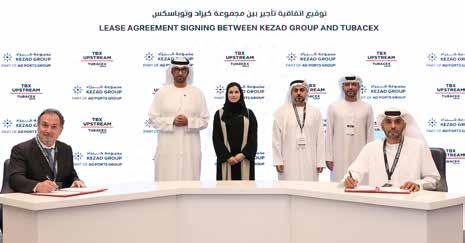
The 50,000sqm facility to be developed in KEZAD will enable Tubacex to establish a strong presence in the UAE, while reaching out to its global network of clients. The company provides a wide range of stainless-steel tubular solutions for the Energy market and operates as a
Dubai Investments subsidiaries have consistently delivered strong and enduring results, capitalizing on key opportunities and leveraging strategic fully integrated one-stop-shop enterprise, a press statement indicated.
“Tubacex Group’s global leadership in tubular solutions perfectly aligns with our vision for industrial excellence. Our infrastructure and services will help the company enhance its offering and benefit not only the Abu Dhabi industrial
initiatives, highlighting the Group’s exceptional performance and reaffirming its standing as a reliable and resilient investment powerhouse, a press communique indicated.
The ‘Make it in the Emirates’ Forum represented an opportunity for Dubai Investments to strengthen existing partnerships, explore new collaborations, and showcase its unwavering dedication to economic diversification and sustainable growth in the UAE, the press statement concluded.
ecosystem but the region and the world from its base in KEZAD,” remarked Al Hameli.
“Tubacex will implement in Abu Dhabi the sector’s most advanced, sustainable manufacturing technologies, and thus secure the supply of a key component needed for the UAE to meet its increasing natural gas production targets,” stated Esmoris.
n Jaguar Land Rover (JLR) recently announced a new collaboration with Everstream Analytics, the industryleading supply chain mapping and risk analytics experts, which will embed AI into JLR’s supply chain management.
With this new technology, JLR can monitor its supply chain in real-time to help avert any future global supply issues, protecting the production of its current models and next generation of pureelectric vehicles, the company confirmed in a press communique.
The technology analyses data using a combination of AI, predictive analytics, machine learning and human intuition to plot emerging incidents such as natural disasters, strikes, data breaches and export issues on a global map, alerting JLR to any potential impact on its supply chain.
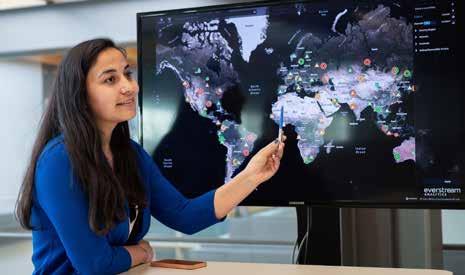
This capability, which updates in real-time, takes measures to avoid any industrial disruption, which could impact production and increase costs.
JLR is introducing Everstream technology as part of a wider strategy to
build a sophisticated digitally enabled supply ecosystem delivering end-to-end visibility and security. Using Everstream’s insights, JLR has already taken positive action to avoid disruption at global freight ports to support delivery of vehicles to clients, the press statement continued.
“Through our collaboration with Everstream Analytics, we are harnessing the power of AI to proactively manage risks before they cause disruption to production, ensuring we are resilient
n FedEx and Floship, a leading global circular supply chain solutions provider for e-commerce brands, today announced a partnership designed to provide enhanced fulfillment and logistics services to e-tailers worldwide.

Through investment by the FedEx Innovation Lan (FIL), the partnership will create an end-to-end digitalized fulfillment and return solution, enhancing operational efficiency through optimal inventory management and best-in-class delivery using FedEx services.
This partnership will give FedEx’s e-commerce customers access to Floship’s global network of warehouses and powerful logistics platform’s capabilities to streamline their e-commerce fulfillment operations.
At the same time, Floship’s customers will be able to leverage FedEx global networks as well as a full range of FedEx extensive transportation options to optimize their operations.
This is the second investment by FIL, which makes early-stage investments in
rising start-ups primarily in India to bring additional value in terms of capabilities and speed to market to start-up firms through FedEx global networks, resources, and customer base.
“FedEx continues to actively seek out strategic collaborations like this to help evolve our operations and product offerings to meet the needs of the modern supply chain,” remarked Kami Viswanathan, SVP,
and can deliver on the commitments we make to our clients,” affirmed Barbara Bergmeier, Executive Director, Industrial Operations, JLR.
“The global value chains serving electrified vehicles are among the most complex to navigate. Everstream Analytics’ AI-driven supplier visibility and insights empower JLR to proactively mitigate risks, enhance agility, and promote supply chain resilience,” asserted Julie Gerdeman, CEO, Everstream Analytics.
Middle East, Indian Subcontinent and Africa, FedEx Express.
“By bringing this collaboration to market, our mutual goal is to provide e-commerce brands and retailers with a one-stop, allinclusive two-way supply chain solution that enables brands to grow at an exponential rate whilst simultaneously delivering a superior customer experience,” commented Joshua Tsui, CEO, Floship.
n AP Moller–Maersk (Maersk) recently announced a revolutionary eCommerce fulfilment solution in India with which all elements of an eCommerce fulfilment solution will be available through a single window at a flat rate of INR 80 (US$ 0.98) per order.
This solution has primarily been targeted at a typical small or medium eCommerce business in India that relies on multiple logistics partners for different activities.
With this solution, Maersk is taking the complexities out of its customers’ supply chains by providing singlewindow access to all required solutions, such as storage in warehouses, last-mile deliveries and executing return orders, all while providing end-to-end visibility at unified pricing, a press note indicated.
n Karcher, a leading global name in cleaning technology, and the BEEAH Group, the region’s leading sustainability and digitalisation expert, have entered an agreement to collaborate across multiple projects and to enhance their strategic collaboration in key areas of technology enhancements, such as robotic cleaning solutions.
Joe Lahoud, Managing Director, Karcher Middle East and Khaled Al Huraimel, Group CEO, BEEAH Group, and Fahad Shehail, Group COO, attended the MoU signing which took place at BEEAH Headquarters.
“This collaboration reflects our shared commitment to driving innovation and delivering state-of-the-art solutions for cleaning, waste management innovation and sustainability,” remarked Lahoud.
Under the terms of the MoU, Karcher will be the preferred partner in the supply of equipment for large sweepers for BEEAH’s
“With our ‘One Country, one Price’ solution, we will take complexities out of our customers’ supply chains and grow with them as they focus on what they do the best,” stated Vikash Agarwal, Managing Director, Maersk South Asia.
With the new eCommerce fulfilment solution, all these logistics requirements will be available to the eCommerce business through Maersk as a single partner. The enablers for Maersk to deploy such a solution include multiple warehousing facilities in multiple cities.
With its ‘One Country, One Price’ solution, Maersk is bringing all the services under a single charge. This will include 60 days of storage, delivery across India covering 18000 pin codes in 48 hours, 20% returns to origin (RTO) and at no fixed monthly costs or no minimum orders.
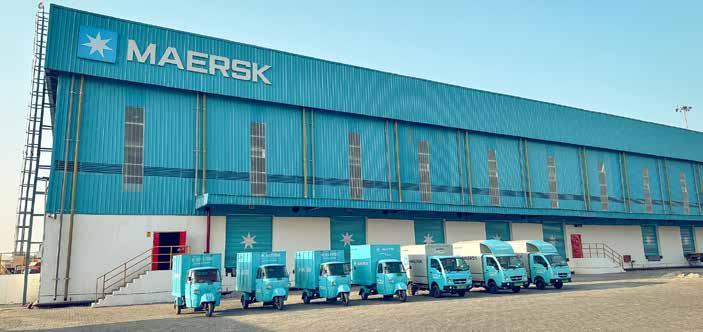
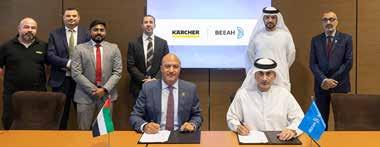
municipal contracts. The collaboration will enable BEEAH Group to leverage Kärcher’s cutting-edge cleaning technology to enhance waste management operations and maintain the highest standards of cleanliness in public spaces.
“Kärcher’s advanced cleaning technology and expertise will undoubtedly contribute
to our mission of creating a sustainable and cleaner environment,” commented Al Huraimel.
This collaboration between Karcher and BEEAH Group aims to drive innovation and efficiency in waste management practices, further advancing the sustainable development goals of the UAE.



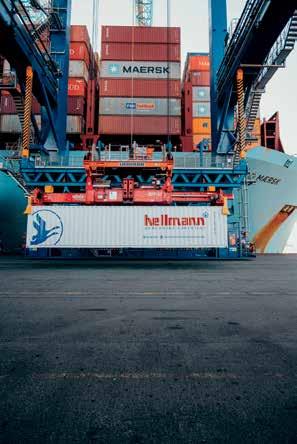
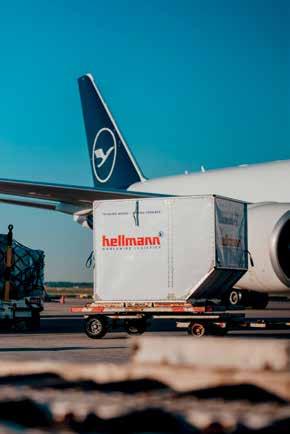
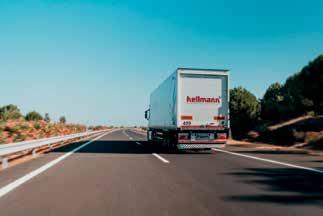

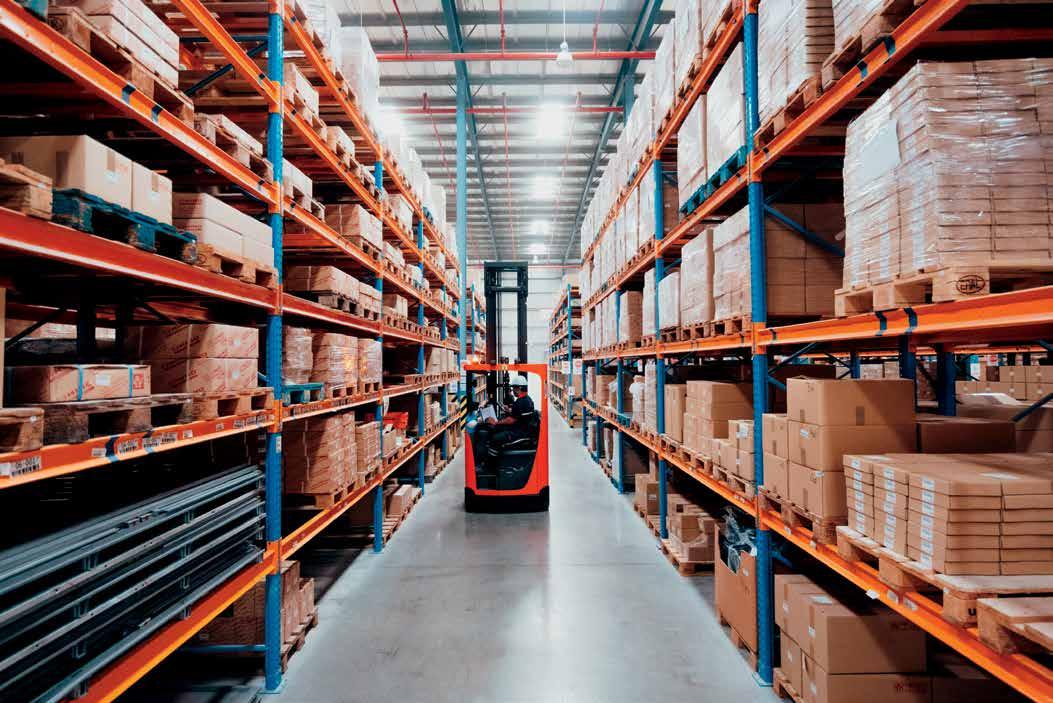
W i t h m o r e t h a n 4 M i l l i o n s q m o f s t o r a g e s p a c e w i t h i n t h e I M E A r e g i o n H e l l m a n n o f f e r s s i n g l e / m u l t i - u s e r f a c i l i t i e s , i n - h o u s e l o g i s t i c s s o l u t i o n s , e - c o m m e r c e a n d v a l u e - a d d e d s e r v i c e s O u r p r o d u c t p o r t f o l i o i n t h e a r e a o f C o n t r a c t L o g i s t i c s o f f e r s i n n o v a t i v e a n d c u s t o m i z a b l e s o l u t i o n s f o r y o u r s u p p l y c h a i n

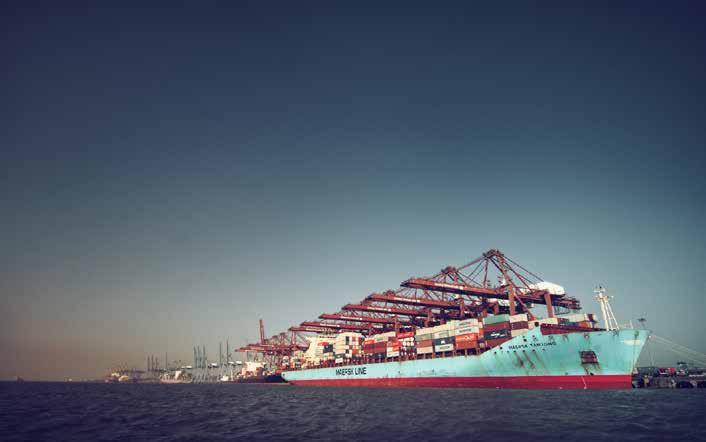
n AP Moller-Maersk (Maersk) has made an order for six mid-sized container vessels, all having dualfuel engines able to operate on green methanol.
Yangzijiang Shipbuilding Group will build the six 9,000 TEU vessels which will be delivered in 2026 and 2027, the company said in a press communique.
“With this order, we take another step in the green transformation of our fleet and towards our target of becoming net-zero in 2040. As with all our other vessel orders for the last two years, these ships will be able to run on green methanol,” stated Rabab Boulos, Chief Infrastructure Officer, Maersk.
In 2021, Maersk ordered the world’s first methanol-enabled container vessel following a commitment to the principle of only ordering newbuilt vessels that can sail on green fuels. Just two years later, the global orderbook stands at more than 100 methanol-enabled vessels. By ordering an additional six vessels, Maersk now has 25 methanolenabled vessels on order. They have a capacity of 9,000 containers (Twenty Foot Equivalent -TEU)
Later this summer, the first methanol-enabled vessel, a 2,100 TEU feeder vessel, will be delivered to Maersk.
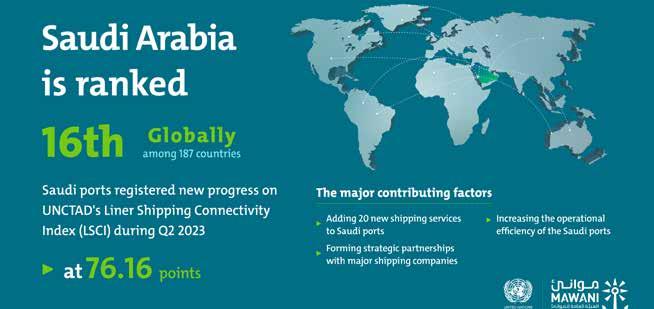
The Saudi Ports Authority (Mawani) announced the inclusion of Jeddah Islamic Port in the REX shipping service operated by Asyad Line, a part of Omani integrated logistics provider Asyad Group.

Introduced in May 2023, this new cargo route utilizes two vessels with a total capacity of 2,800 TEUs to establish connections between Jeddah and the Indian ports of Nhava Sheva and Mundra as well as Oman’s Salalah and Sokhna, Mawani stated in a press communique.
This move expands the maritime connectivity and trade output of the Kingdom in line with the objectives of the National Transport and Logistics Strategy (NTLS). The Red Sea port is undergoing a series of infrastructure upgrades. These include the deepening of approach channels and turning basins, building new berths, to enable greater maritime traffic and bolstering its logistics offerings, the press statement concluded.
n Dutch heavy-lift transporter Mammoet has offered a zero-emission option for SPMT transport (Self-Propelled Modular Transporter), compatible with any trailer in its fleet.
This development has been made possible through a conversion process for SPMT power pack units (PPUs), which replaces the diesel powertrain inside existing trailers with an electric alternative. Once retrofitted, each trailer combination has comparable power to existing industry standard units.
The PPU vastly reduces noise levels at project sites, resulting in a safer and more productive work environment for our customers and colleagues. Communication between staff is clearer, while at locations where sound restrictions are in place longer operational windows are now possible.
The system represents another step towards zero emission on site, eliminating the carbon footprint of SPMT transport entirely. This allows our customers to meet increasingly strict environmental legislation more
easily, reducing the impact of transport phases on surrounding communities and infrastructure.
This solution was part-financed by the DKTI, a Dutch government program to develop climate technologies and innovations in logistics. Mammoet worked with a leading provider of zero-
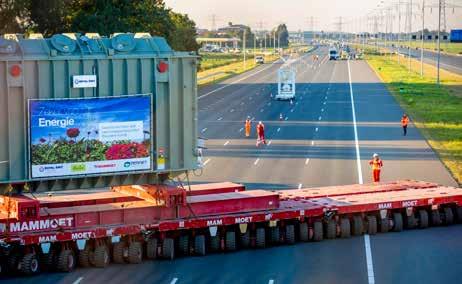
emissions powertrains for heavy industry to bring the electric power pack solution to market.
Developed by Mammoet in 1984 and with over 40,000 axle lines in use globally, the SPMT revolutionized heavy industry by maneuvering any load safely, efficiently and with precision.
n Nissan Motor Corporation recently announced senior management appointments in the Middle East, as it looks to accelerate its business performance in the region in line with the company’s long-term vision, Nissan Ambition 2030. The changes, set to take place across the Nissan and INFINITI brands, will be effective on 1 July 2023.
Albert Khreiche has been appointed as the new Managing Director, for INFINITI Middle East. An expert in the sector with more than 22 years of experience, Khreiche joined Nissan in 2017 and moves from his current role as Director of Sales and Sales Planning at Nissan Middle East.
In his new role, He will report to Thierry Sabbagh, President of Nissan Saudi Arabia and INFINITI Middle East and Managing Director, Nissan Middle East.
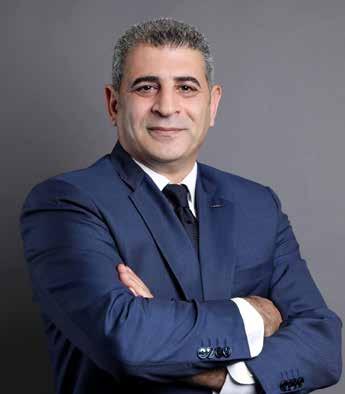
Mayssa Ayoub, currently General Manager Sales at Nissan Middle East will assume the role of Director of Sales and Sales Planning, from 1 July 2023. The first female appointed to a senior leadership position in Sales at Nissan Middle East, Ayoub has been with the brand since 2014 in a variety of roles across functions including Sales, Customer Quality and Customer Experience.
Commenting on the new appointments, Thierry Sabbagh, President of Nissan Saudi Arabia and INFINITI Middle East and Managing Director, Nissan Middle East said: “Our people are critical to achieving success, and I extend my congratulations to my colleagues on their new roles as we pursue a bright future in the region,” remarked Sabbagh.
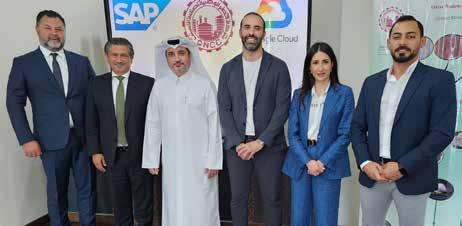
n Qatar National Cement Company (QNCC), a key player behind the nation’s construction industry boom, has signed a partnership agreement with global technology company SAP and implementation partner Mannai ICT that will enable it to leverage the benefits of cloud computing, with data securely hosted on Google Cloud.
The implementation will include S/4HANA, an enterprise resource planning (ERP) solution that enables 360-degree visibility and control over all operations, and SAP Success Factors, which delivers innovative employeemanagement solutions.
The partnership will see QNCC automate and streamline business processes, while increasing the agility of its operations and enhancing the services it delivers to its customers and employees. The transformation will also optimize QNCC’s business value through RISE with SAP on Google Cloud and SAP Business Technology Platform (SAP BTP), according to a press communique.
“In undertaking this end-to-end digital
transformation, our aim is to modernize and streamline our systems, increase efficiencies, and enhance the services we deliver to our customers and employees,” remarked Engineer Essa Mohammed Ali A M Kaldari, CEO, QNCC.
“Through this digital transformation, QNCC is aligning itself with Qatar’s 2030 National Vision and supporting its sustainability plans. It is also ensuring its future success by increasing its visibility over all operations, enabling
n Unilever Arabia recently announced the addition of the first-ever Electric Van (EV) to its fleet in the UAE.
Making deliveries to its key customers in Dubai as of this March, the incorporation of the 1-tonne battery-powered van signifies a major stride in Unilever’s efforts towards reduced emissions via its logistics operations and achieving net zero value chain emissions by 2039, the company said in a press notification.
As part of a strategic partnership with leading retailer, Carrefour, owned and operated by Majid Al Futtaim in the UAE, the EV van will initially deliver Unilever’s products to Carrefour’s Mall of the Emirates store. This will provide customers in Dubai with a sustainable delivery solution, reducing emissions by up to 15 per cent in comparison with traditional vehicles.
The region’s first EV van was launched in the presence of Youssef Lootah, CEO, Corporate Strategy and Performance Sector, Dubai Department of Tourism and
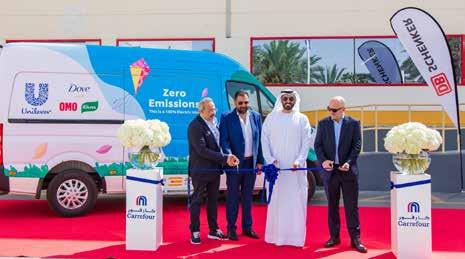
Commerce Marketing (Dubai Tourism) along with Ahmed Kadous, Unilever’s Head of Supply Chain MENA & PC Middle East & Turkey; Khalil Yassine, Head of Unilever Arabia, and Luc Charrier Vice President, Merchandise, Carrefour, Majid Al Futtaim Retail.
“The introduction of electric vehicles
it to react in an agile way to changes in the market and expected rise in demand for its products,” commented Alaa Jaber, Managing Director, SAP Qatar and Fast Growth Markets.
Google Cloud and SAP are committed through the RISE with SAP program to maximize the potential of customers migrating to the cloud, where they can run SAP on a fast, secure and reliable cloud, achieving a compelling return on investment, the press statement concluded.
to our delivery fleet is a core ambition and is central to Unilever’s sustainability commitment. We look forward to working more closely with the public sector and industry to further expand the infrastructure and seamlessly support the transition to electric mobility,” remarked Kadous.

BOOK YOUR SPACE TODAY
Attracting the biggest players in the aerospace, space and defence industry, Dubai Airshow 2023 is all set to be another world-class edition for the industry’s trailblazers and innovators to showcase, identify future trends and opportunities and close winning deals. www.dubaiairshow.aero
13-17 NOVEMBER 2023



DWC, DUBAI AIRSHOW SITE
Strategic partners:
Supported by:
n Tristar Group celebrated World Environment Day (WED) on June 5 at its headquarters in Jebel Ali with both internal and external stakeholders, as well as with overseas staff who joined online.
There were two speakers who shared their knowledge related to this year’s WED campaign #BeatPlasticPollution. Jenson George of Carbon Middle East spoke on the topic ‘Ban plastic and then what?’ and enlightened the participants about producing more sustainable packaging products and avoiding plastic or plastic-related products.
Marina Pugacheva from Quality Indeed Consulting spoke about the ‘Circular Economy’ and explained the importance of recycling plastics and other materials.
Tristar Group CEO Eugene Mayne addressed the audience showcasing the commitment which Tristar has shown for the last two decades on issues related to environmental protection. He led the ‘pledging’ to ‘avoid single-use plastic and to reuse or recycle plastic that we use’.
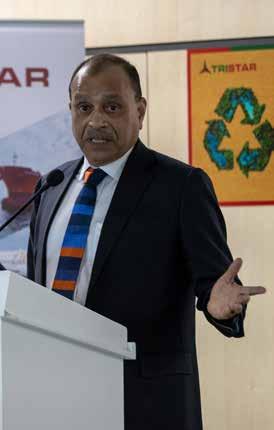
Since 2019, Tristar has banned the use of plastic water bottles in its facilities
following its commitment to support the 2018 WED theme of ‘Beat Plastic Pollution’. Its Maritime Logistics division also banned non-reusable plastic materials in its operations.
Last year, Tristar began disclosing its environmental impact through the global non-profit Carbon Discloser Project (CDP) and has partnered with Smart Freight Centre (SFC) for its GHG reduction programmes.
“We have been practicing sustainability long before it became today’s imperative. Our wide-ranging mitigation measures and mechanisms are monitored, and publicly reported in our annual Sustainability Report – since 2012,” affirmed Mayne.
All Tristar ocean-going vessels are compliant with the Energy Efficiency Existing Ship Index (EEXI), and their Carbon Intensity Indicators (CII) adhere to IMO standards. This year, Tristar plans to achieve more efficient management of energy, water, and waste, and introduce biodiesel or alternate sustainable fuels, a press communique concluded.
n Emirates Float Glass (EFG), a global leader in the float glass industry and a wholly owned subsidiary of Dubai Investments, has become the first float glass manufacturer to be ICV (In- Country Value Programme) certified in the UAE.
With an advanced facility, EFG has become a dominant player in the region for float glass in architecture and automotive applications.
The certification evaluates a company’s performance in various areas, including localisation, supplier development, technology transfer, and human capital development, among others. This significant milestone reinforces EFG’s commitment to sustainable development, reiterating its position as an industry pioneer.
EFG attained an additional score due to its initiative to participate in the MoIAT (UAE Ministry of Investment and Advanced Technology) assessment, which is a combination of end-to-end factory tour and group discussions with different
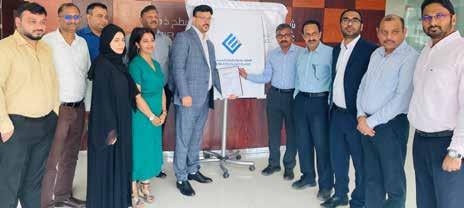
stakeholders broadly covering strategy and governance, process and operations, innovation and R&D, customer and market, and IT management and governance.
By successfully meeting the rigorous ICV certification standards, EFG has demonstrated its dedication to nurturing the UAE’s economy, supporting local industries, and creating sustainable employment opportunities, further solidifying the
company’s reputation as a leading contributor to the country’s economic diversification and vision for the future.
“This historic milestone demonstrates our unwavering commitment to the UAE’s vision of sustainable development and propels us towards our goal of attaining the golden listing, further elevating our position among industry leaders,” asserted Saleem Raza, General Manager, Emirates Float Glass.
n A leading manufacturer of commercial trucks has announced its participation in The Plastic Pledge, an innovative and impactful project aimed at addressing the global plastic pollution crisis.
In partnership with the Arabian Ocean Rowing Team, UD Trucks MEENA (Middle East, East & North Africa), is determined to help make a difference by reducing plastic consumption both within its organisation and on an individual level.
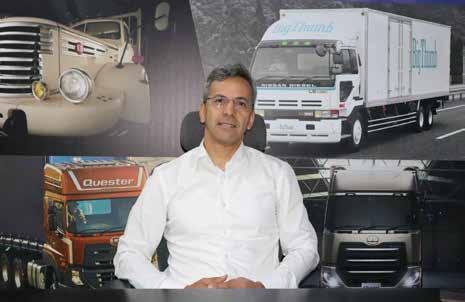
The Plastic Pledge Project is in keeping with UD Trucks’ firm belief in corporate responsibility and its dedication to creating a cleaner and greener future. By actively addressing the challenges posed by plastic waste, UD Trucks aims to set a precedent for sustainable practices within the automotive industry and inspire others to join the cause.
The Plastic Pledge Project encompasses a range of important initiatives, each designed to make a significant impact on plastic consumption – currently, at least 11 million tons of plastic enter the world’s seas every year!
To drive change from within, UD Trucks will implement employee awareness and training programmes, ensuring that each member of the organisation understands the importance of reducing plastic waste, and actively participates in the initiative. Additionally, UD Trucks will engage with suppliers and partners to encourage them
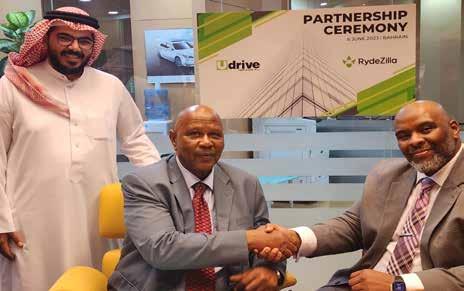
n Rydezilla, the innovative car rental management system, has joined forces with Udrive Bahrain, a leading car rental agency, to announce a strategic partnership that aims to revolutionize the car rental industry in Bahrain.
Customers can now access Udrive’s extensive fleet of vehicles, through the seamless online booking feature on the Rydezilla app, a press release indicated.
Building on its success in the UAE, where Rydezilla has been providing cutting-edge car rental solutions for over a year, the company is excited to extend its services to Bahrain. This expansion brings unparalleled online experiences, unmatched convenience, and exceptional deals to customers in Bahrain.
By integrating Udrive Bahrain’s fleet into the Rydezilla app, customers enjoy a user-friendly interface that simplifies the car rental experience. The app’s intuitive design and advanced search features enable customers to find the perfect vehicle for their specific needs, whether it’s a short business trip or a memorable family vacation.
“By combining our expertise and resources, we are committed to setting new industry standards and driving positive change. Through digital innovation and a steadfast focus on customer satisfaction, both Rydezilla and Udrive Bahrain are poised to transform the car rental experience,” commented
to take initiatives for sustainable packaging and plastic reduction efforts.
“Plastic pollution is a pressing global issue that requires immediate action. By joining forces, we believe we can make a significant impact and drive positive change. Every simple action counts,” stressed Mourad Hedna, Pr
Maabad Said, Co-Founder & COO, Rydezilla.
“By leveraging Rydezilla’s robust platform, we are confident that we can provide vehicle rental consumers in Bahrain with an unparalleled degree of ease and choice,” remarked Eltayeb Omer, General Manager, Udrive Bahrain.
Burlington Tower
11th Floor, Office no.1111 &1108
Business Bay
Dubai - United Arab Emirates
P.O.Box 51188
marketing-me@savoye.com
Great storage flexibility
Crates, trays and boxes mixable in the same aisle. Single- or dual-storage format, up to six deep, of shelves that can be compartmentalised into several cells. System operating in ambient temperature, refrigerated and freezing environments.
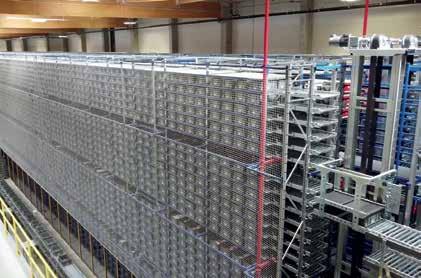
System density
Highly efficient preparation
High-speed aisles capable of achieving a combination of 1100 infeeds and outfeeds per hour. Ergonomic work stations for rates up to 900 order lines per hour.
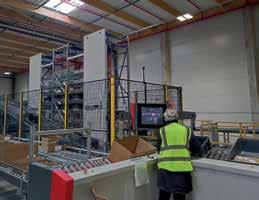
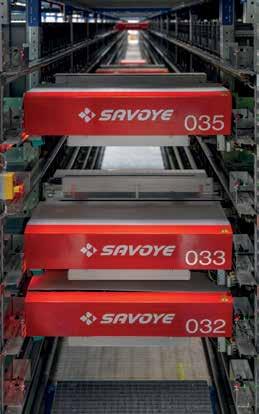
Maximum availability
www.savoye.com
Renault Trucks introducing the 1st heavy truck
100% electric
Renault Trucks introducing the 1st heavy truck
Renault Trucks introducing the 1st heavy truck 100% electric
100% electric
In support of the UAE’s net-zero ambitions
Renault Trucks Middle East and Al Masaood launched the first 100% electric refuse collector truck in the United Arab Emirates.
In support of the UAE’s net-zero ambitions
Renault Trucks Middle East and Al Masaood launched the first 100% electric refuse collector truck in the United Arab Emirates.
In support of the UAE’s net-zero ambitions
Renault Trucks Middle East and Al Masaood launched the first 100% electric refuse collector truck in the United Arab Emirates.
The first fully electric heavy truck launched in the Middle East.
The first fully electric heavy truck launched in the Middle East.
The first fully electric heavy truck launched in the Middle East.
The Renault Trucks D Wide 26t E-Tech Electric is the ideal vehicle for urban waste collection with low operating costs while maintaining optimal range and payload.
The Renault Trucks D Wide 26t E-Tech Electric is the ideal vehicle for urban waste collection with low operating costs while maintaining optimal range and payload.
Equipped with 23m3 Gorica-Farid electric refuse collector, this 100% electric Renault Trucks E-Tech D Wide P6x2 will be operating on Abu Dhabi roads, almost silently with zero tailpipe emissions.
The Renault Trucks D Wide 26t E-Tech Electric is the ideal vehicle for urban waste collection with low operating costs while maintaining optimal range and payload.
Equipped with 23m3 Gorica-Farid electric refuse collector, this 100% electric Renault Trucks E-Tech D Wide P6x2 will be operating on Abu Dhabi roads, almost silently with zero tailpipe emissions.
Equipped with 23m3 Gorica-Farid electric refuse collector, this 100% electric Renault Trucks E-Tech D Wide P6x2 will be operating on Abu Dhabi roads, almost silently with zero tailpipe emissions.
